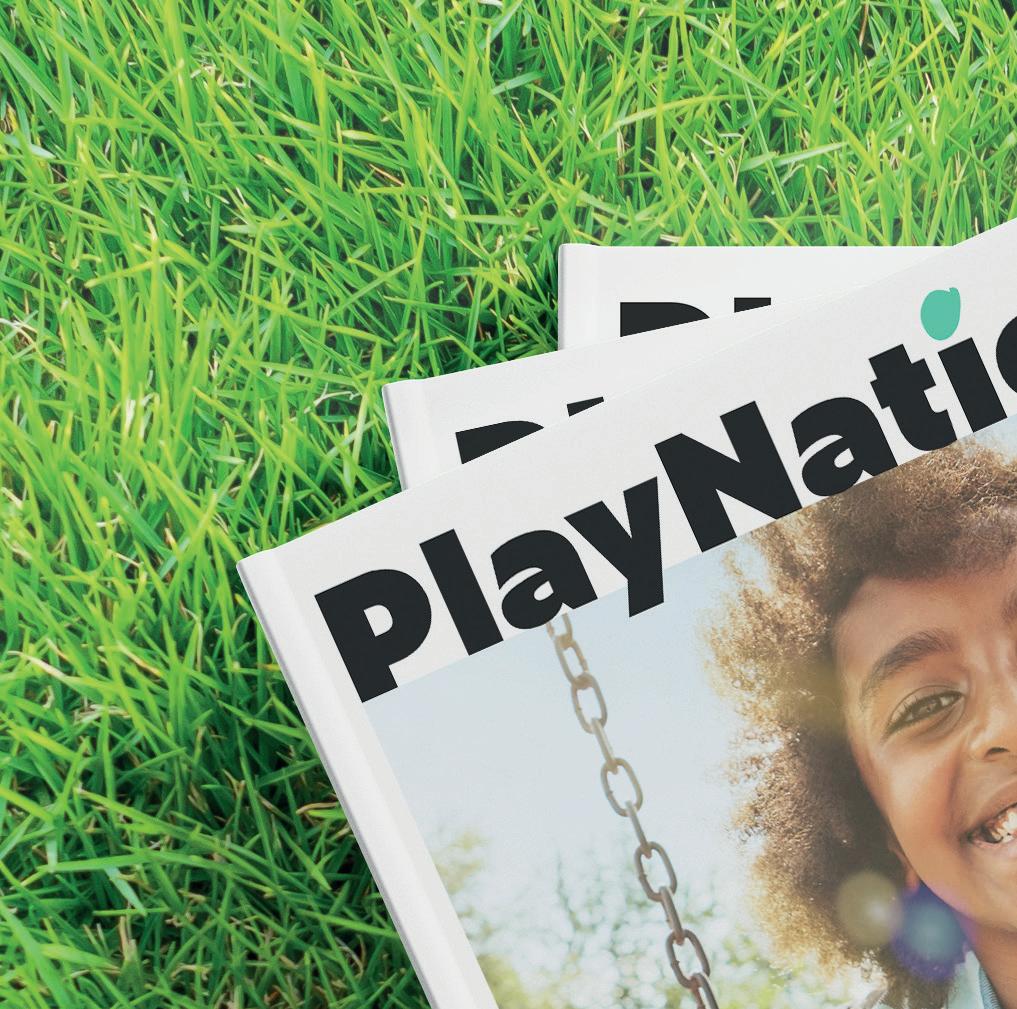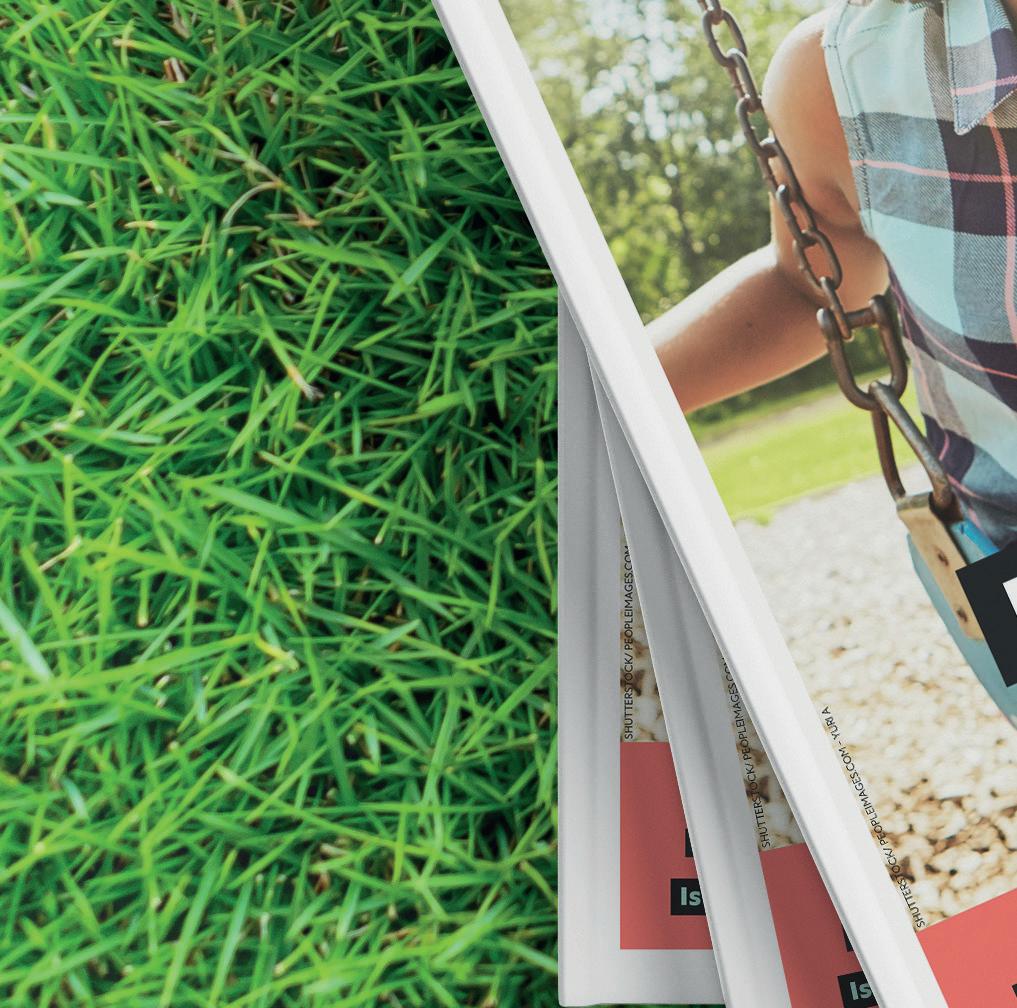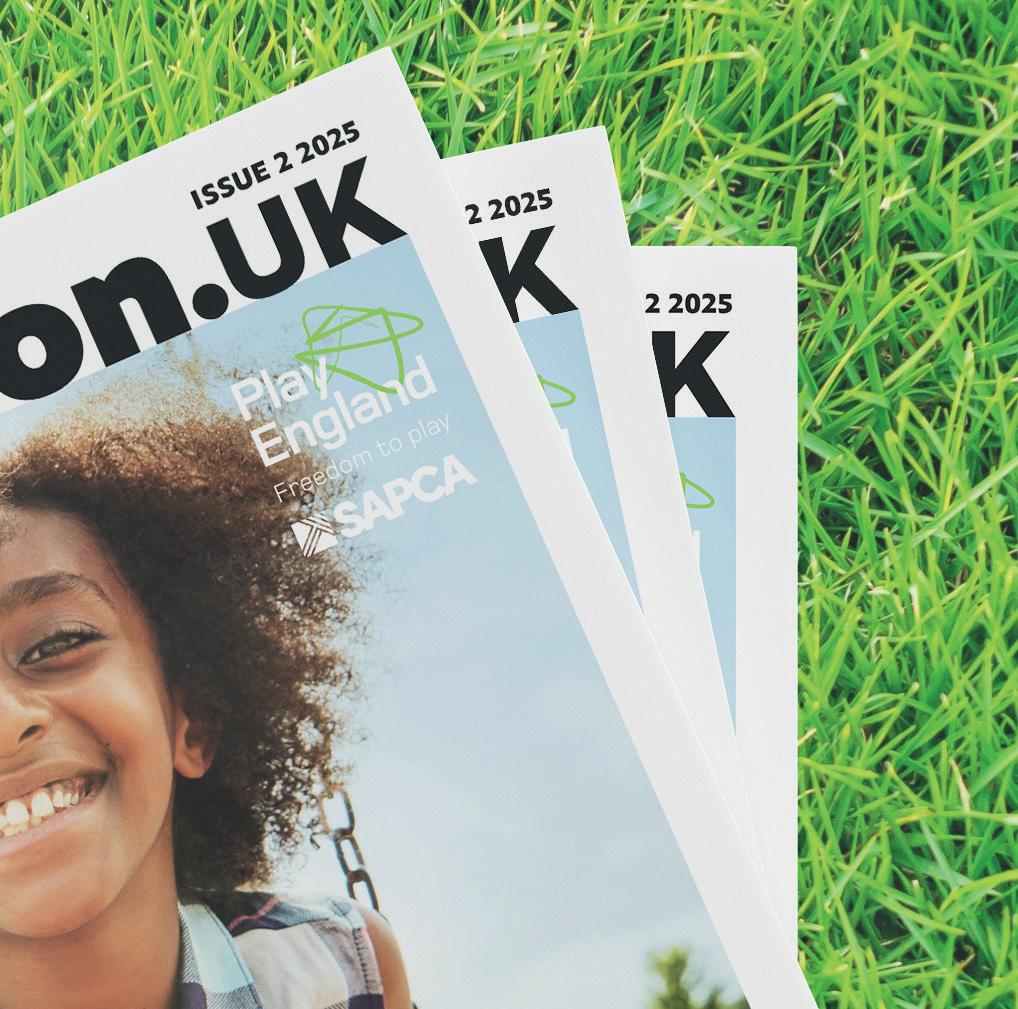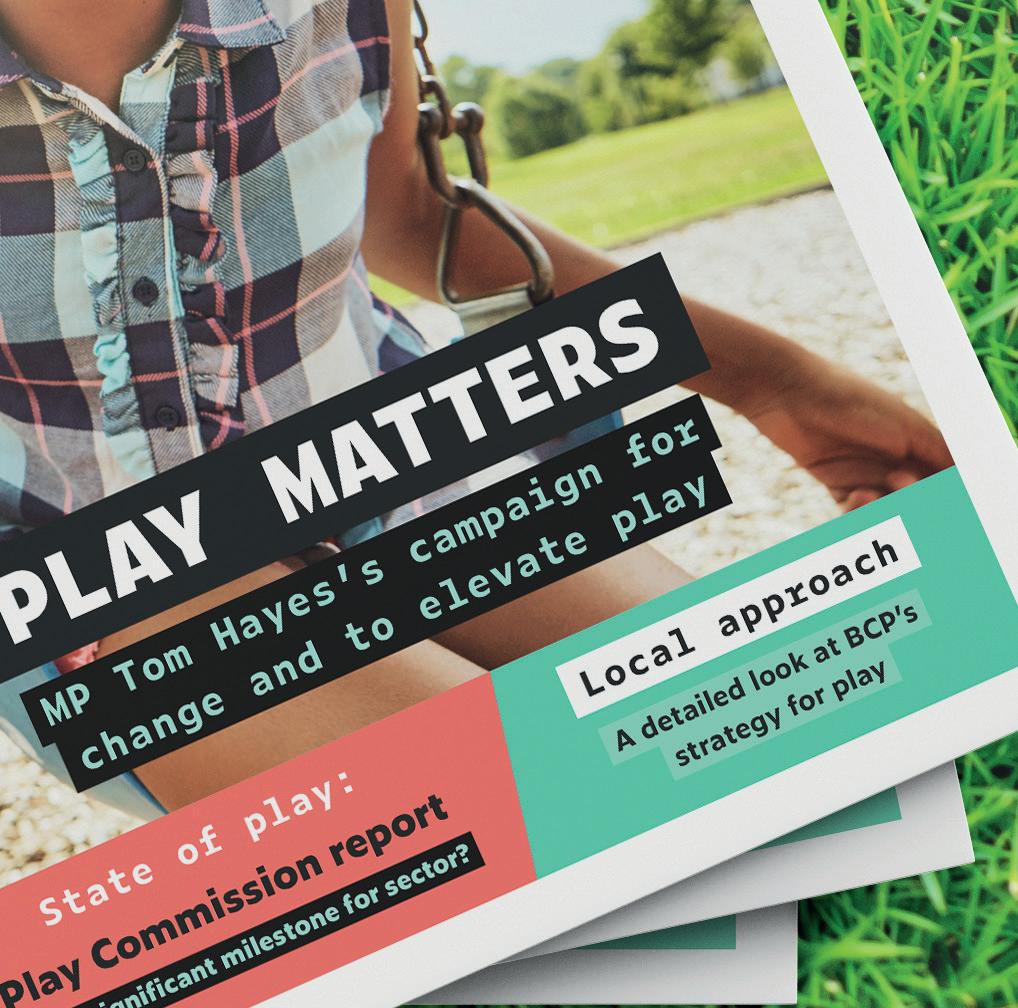PlayNation UK



Play England campaigns for all children and young people to have freedom and space to play throughout childhood.
We work with national partners and other organisations with shared aims to raise awareness about the importance of play. We lobby government to make fundamental policy changes to protect and promote play, and encourage everyone who has an impact

on the lives of children and young people to recognise and plan for children’s play.
Play England has also built up considerable experience and resources to help support individuals and organisations that work in these particular areas:
Government
Local Authorities
Schools
Playwork

We need your support
The new UK government is making positive noises about understanding the importance of play. However, against this positive backdrop, Play England is suffering from a lack of funds to pay for our essential work campaigning for children’s right and freedom to play. Donate today to support our work. www.playengland.org.uk/donate

www.playengland.org.uk
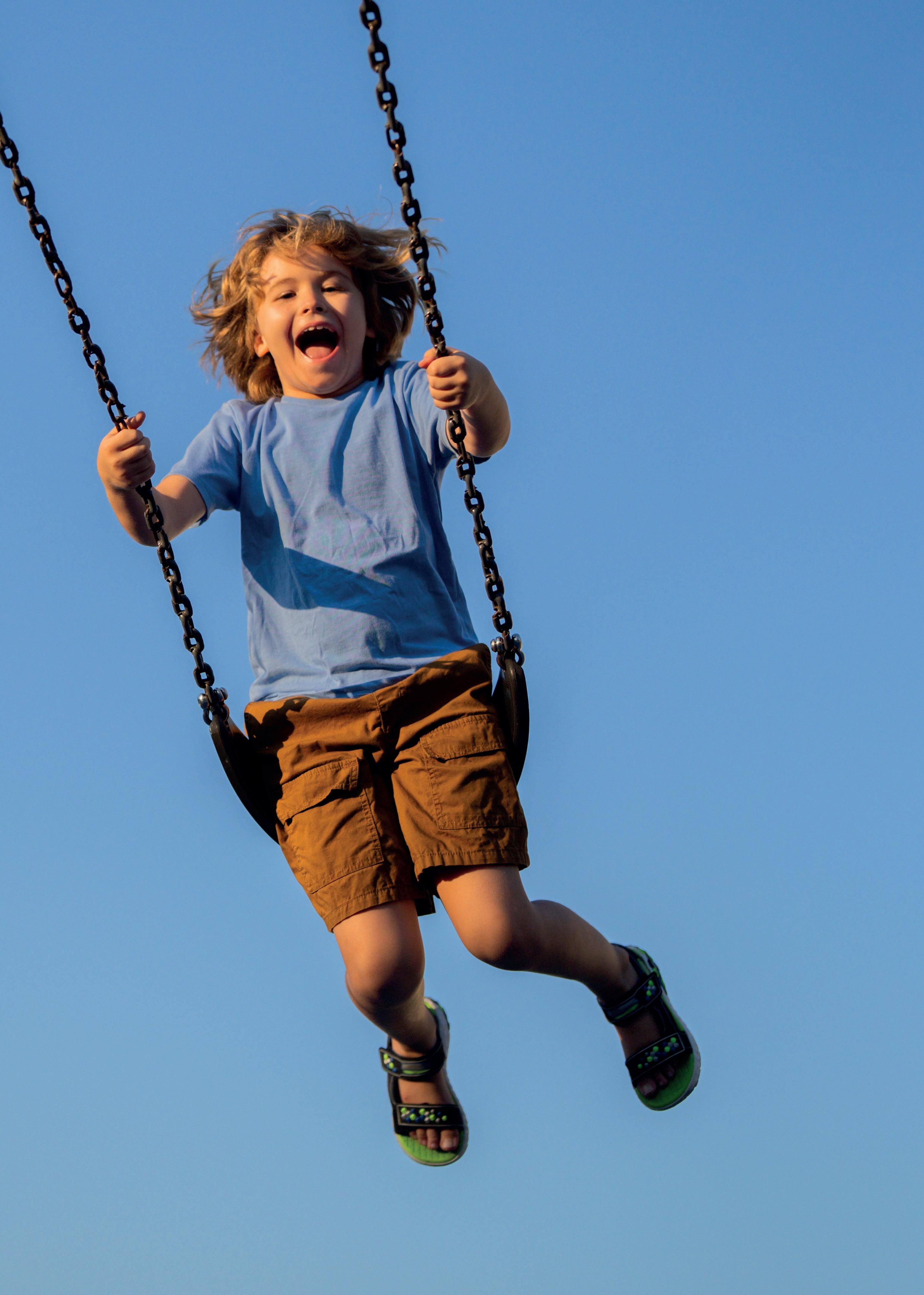
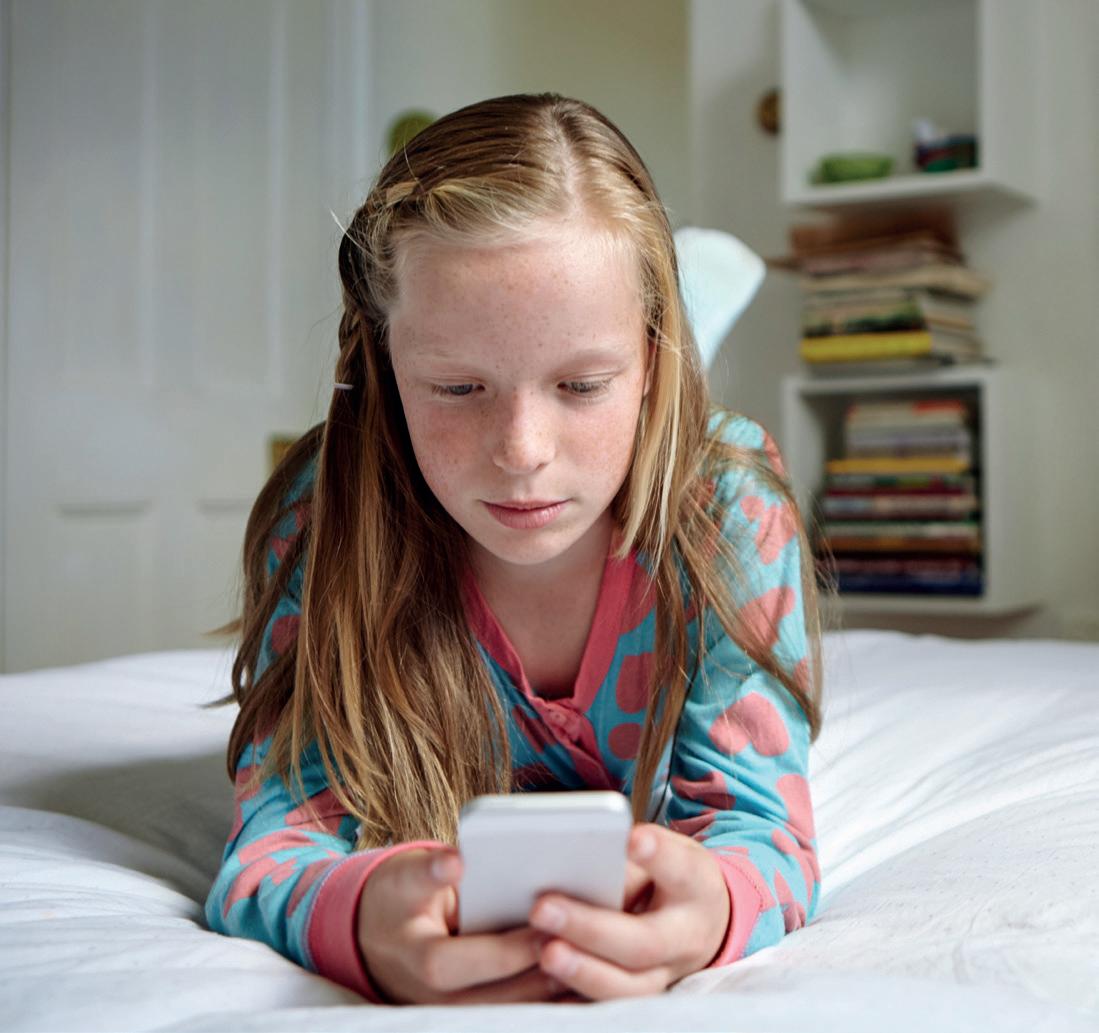




7 News
A round-up of the latest news and most recent facility projects from the play industry
14 Strategic play
There hasn’t been a new play strategy for England in 17 years – are we finally getting one?
16 Tom Hayes MP – why play matters
The Labour MP for Bournemouth East is quickly becoming a true champion of the play sector. He reveals to PlayNation where his passion for play originates from


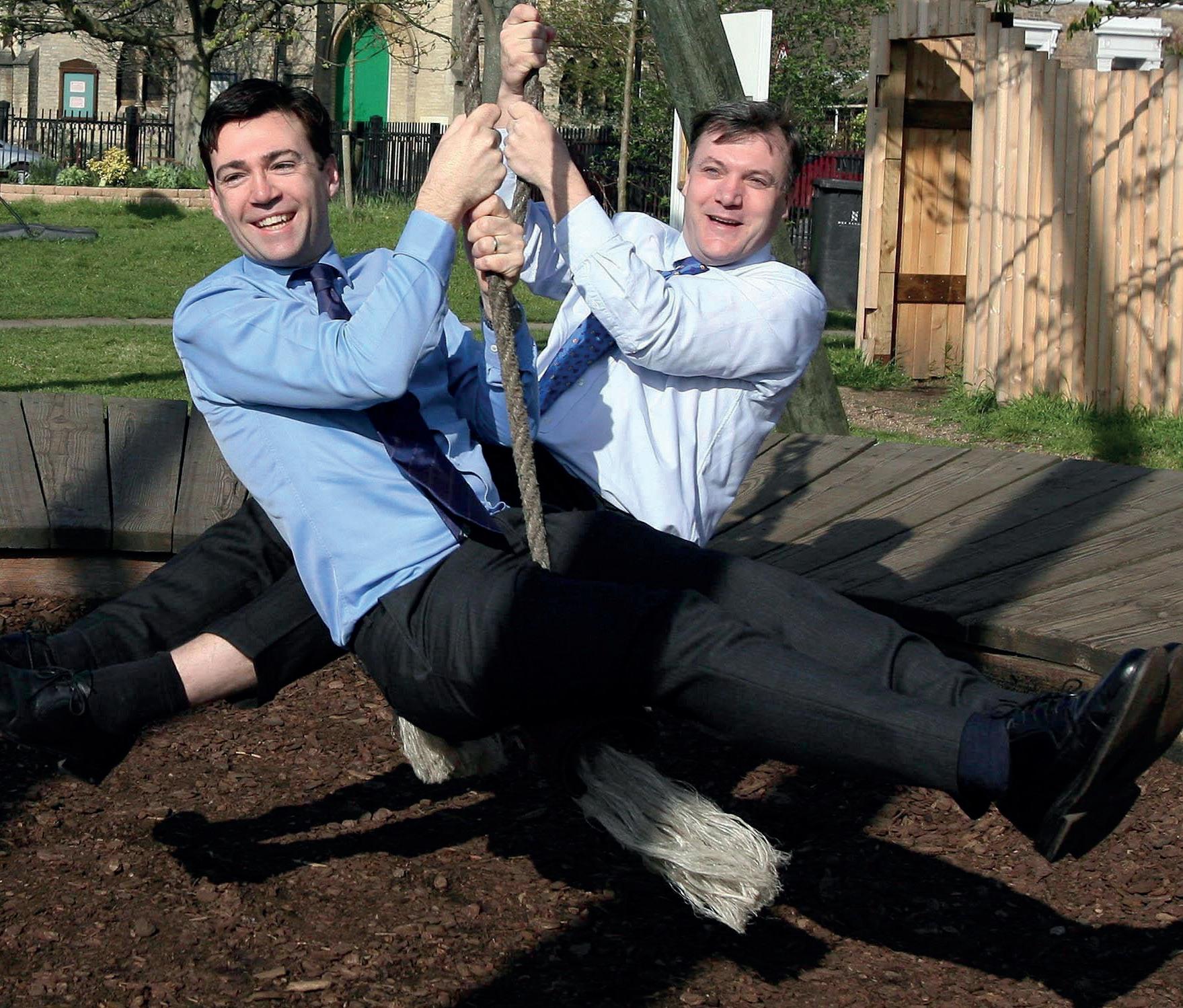

The publication of the Play Commission’s interim report has been hailed as a significant milestone in the journey towards improving the status of play for children across England. PlayNation takes a detailed look
Bournemouth, Christchurch and Poole Council has introduced a strategy for play with the aim of providing high quality, accessible, safe and inclusive play spaces for all. But how does it plan to implement it?




















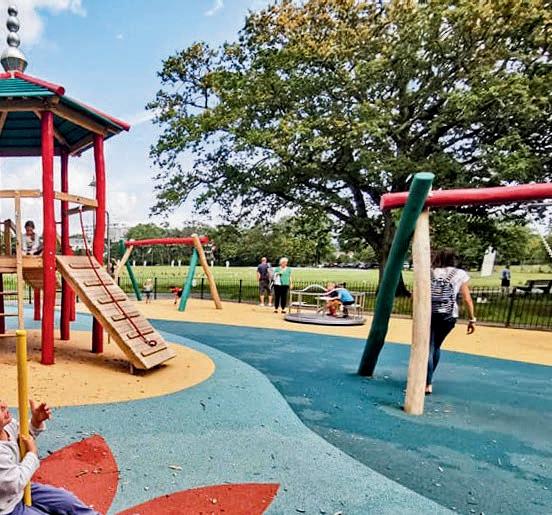
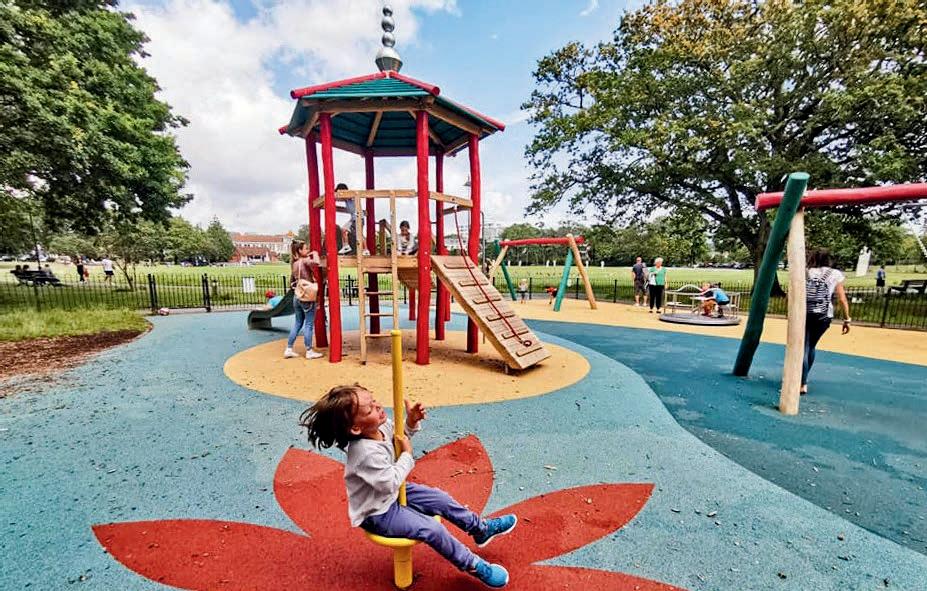





At Jupiter Play, we’re dedicated to delivering playgrounds that leave a lasting legacy. With our unique design approach, clients and end-users are included throughout every stage of the project, from render to reality.



DISCOVER OUR PROCESS today
Design-led Approach

Community Consultation






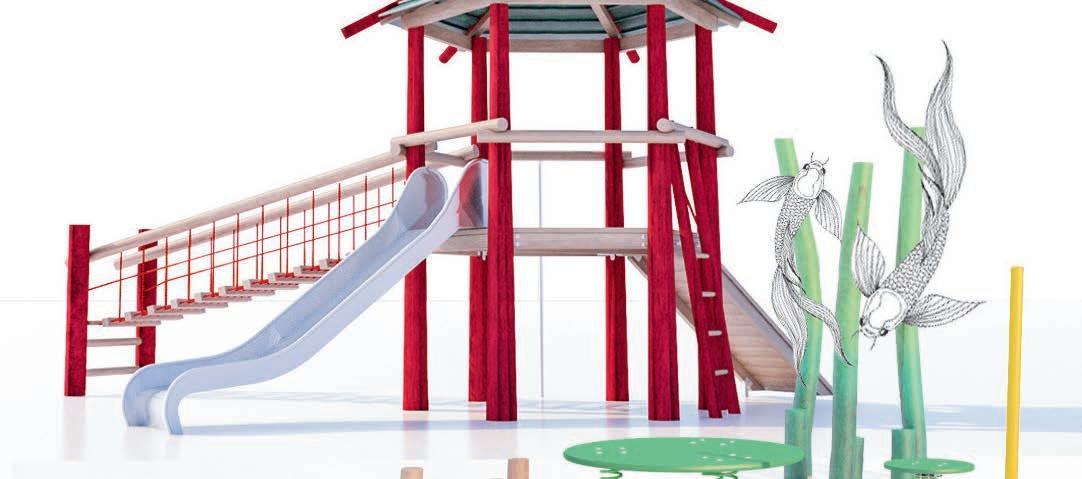





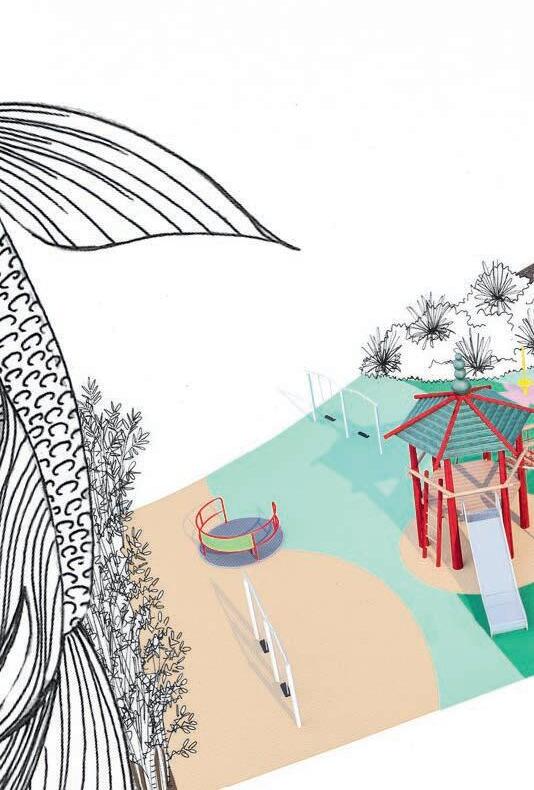



3D Renders and Fly-throughs



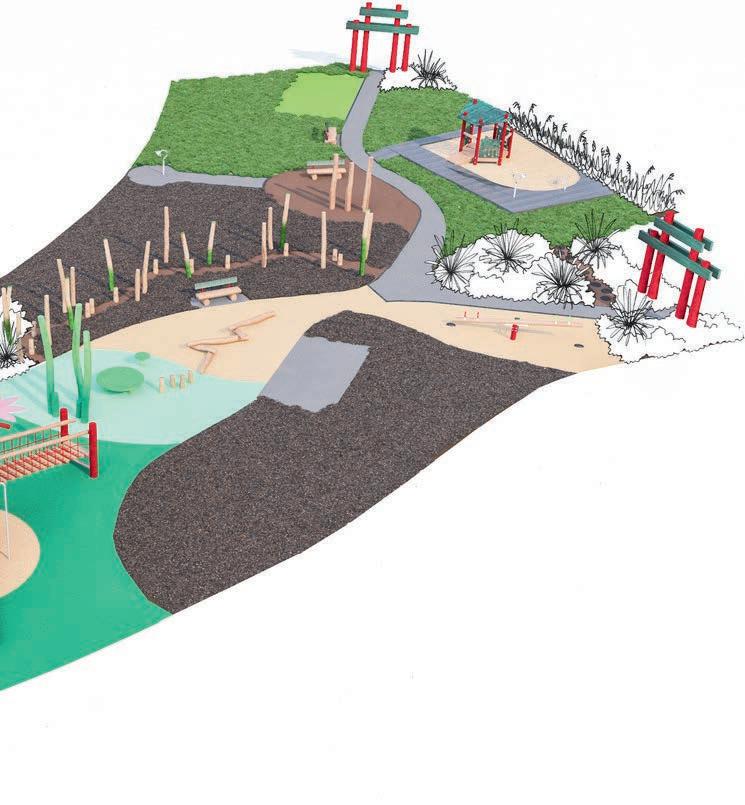

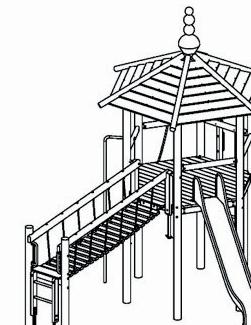

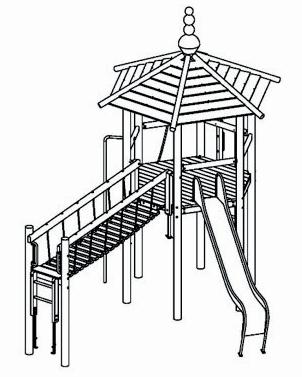

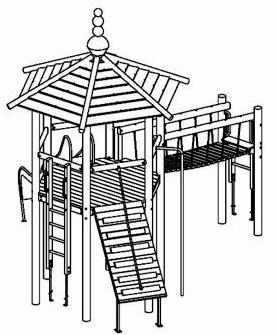
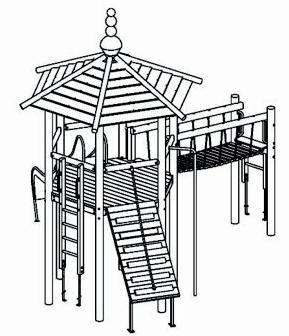
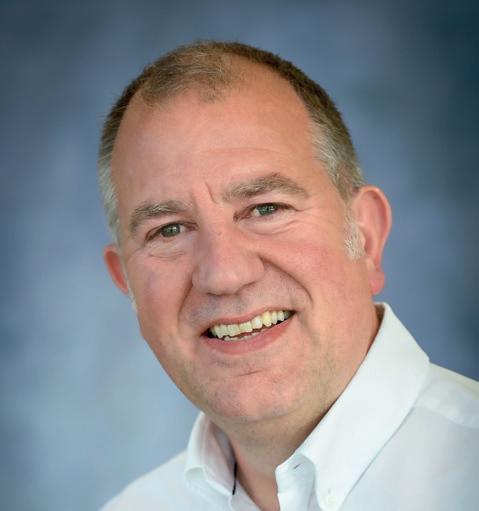
John Challinor
Publisher
PlayNation
john@nationmedia.uk
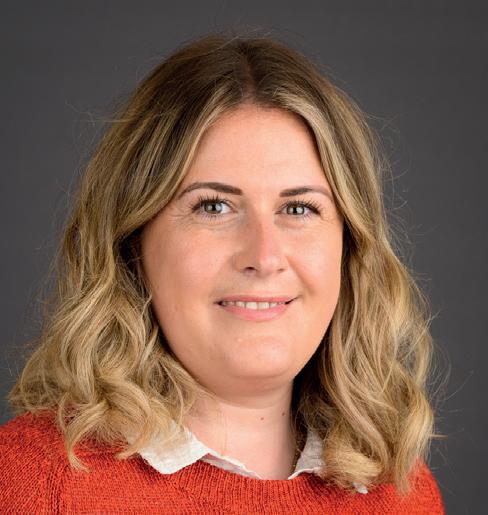
Millie Earl
Leader
BCP Council
@BCPCouncil
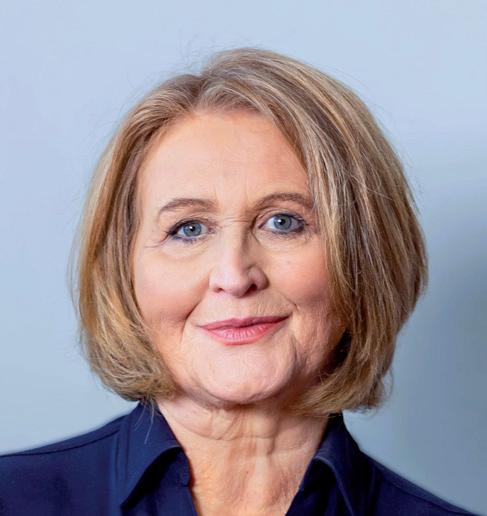
Baroness Anne
Long eld CBE
Center for Young Lives
@annelong eld





Tom Walker Editor
PlayNation
tom@ nationmedia.uk
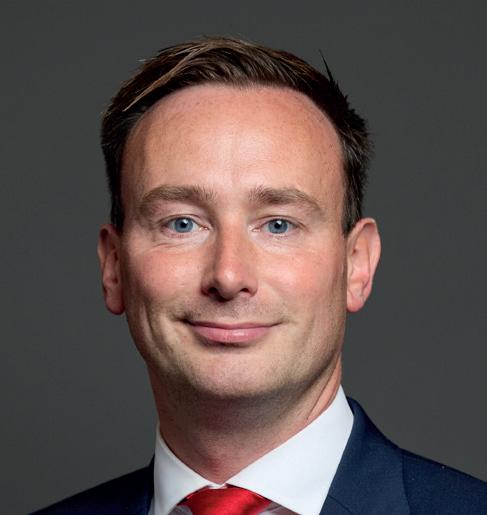
Tom Hayes MP
Labour MP for Bournemouth East
@TomHayesBmouth

Eugene Minogue
Executive Director
Play England
@EugeneMinogue






PlayNation, in partnership with Play England and SAPCA (the Sports And Play Construction Association), is dedicated exclusively to the dynamic and growing sector of play and physical activity for children and young people. Published bi-monthly, the magazine focuses on the policies, people and places that help young people to play and be more active. Subscribe now and we will email you a complimentary copy of the magazine every two months.
This publication is protected by copyright and no part may be reproduced, transmitted or stored in any print or electronic format without the written permission of the publisher. Every effort has been made to ensure the accuracy of the contents of this publication and PlayNation accepts no responsibility for any error or misrepresentation. Opinions expressed by the contributors and advertisers are not necessarily those of the publisher and we do not accept responsibility of losses or damages arising from them. Printed by BCP Media Group Ltd. Advertising opportunities Contact John E: john@nationmedia.uk www.linkedin.com/ company/playnationmag @PlayNationMag
PlayNation is published by SportsNation Ltd in association with Play England (www.playengland.org.uk) and the Sports And Play Construction Association (www.sapca.org.uk)
Scotland’s First Minister, John Swinney, has dedicated £25 million worth of funding to local authorities to invest in the renewal of play parks across Scotland.
All councils will receive a share of the funding to improve the standard of existing play parks –helping to ensure children have access to safe environments to play and socialise in.
The funding is supported by the Play Vision Statement and Action Plan for 2025-2030, which was published last month (March 2025).
Swinney said: “Playing is key to a child’s healthy development, and by enabling councils to invest in outdoor play parks, we will ensure families can access a safe, high-quality place to play within their communities.
“This is all part of my driving mission to eradicate child poverty. Other steps we are taking include investing £3 million to develop mitigations for the UK Government’s two-child benefits cap, £37 million to deliver the

expansion of the free school meals programme, and putting more money in families’ pockets through the Scottish Child Payment.”
The Convention of Scottish Local Authorities (COSLA), the organisation for Scottish Local Government, welcomed the news.
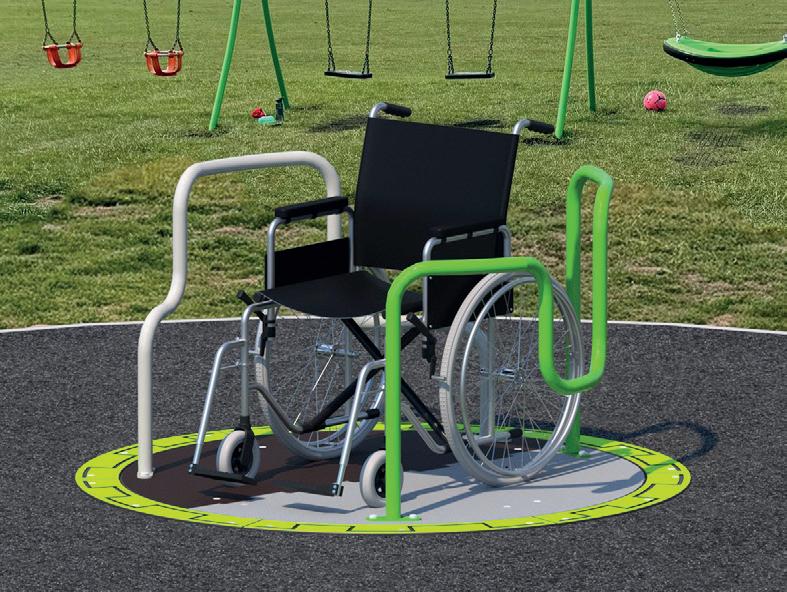
COSLA Spokesperson for Children and Young People, Councillor Tony Buchanan said: “The launch of the Play Vision Statement and Action Plan is very important not just for the enjoyment it brings, but also for the part it plays in developing social skills, interests and curiosity.”
Sutcliffe Play has added a new product to its expanding range of inclusive play equipment. The new Small Inclusive Roundabout is a compact, durable spinner which offers thrills for children of all abilities. A pair of shaped handrails provide standing and seated support while forming a safety stopper for wheelchairs, enabling users to spin in comfort and with peace of mind. The roundabout’s deck features a non-slip surface, a floor graphic to indicate optimum wheel position and an inspection hatch to monitor underground conditions. The outer rim is coloured in contrasting lime green, aiding partially sighted users.
Work has been completed on a new soft play facility at Kings Park Leisure and Learning Centre in Boscombe. Owned by BCP Council and set to open at the beginning of April, the new facility was created as a result of direct community feedback, which highlighted the need for affordable local indoor leisure activities for young people.
As well as brand new soft play facilities, upgrades include an extended café/multi-use function space, new heating and ventilation throughout the centre and improved accessibility with new ramps.
An additional £100,000 has now been secured from central government to install a multiuse sports floor with work set to be complete before 1 April.
This will provide an enhanced leisure offering and mean sports such as badminton, pickleball and martial arts can be introduced. The
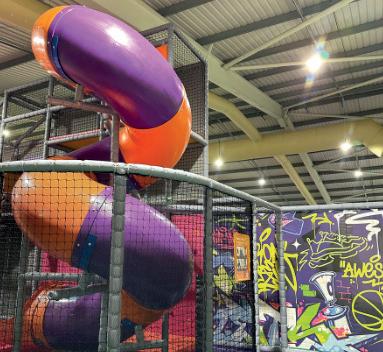
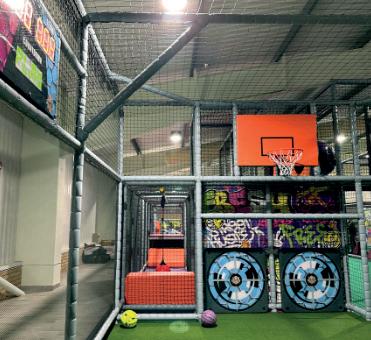
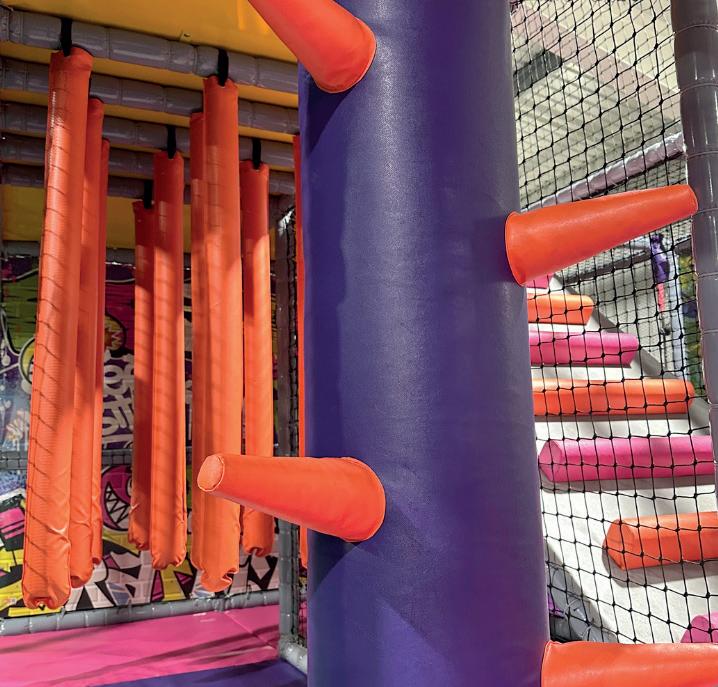
The facility was created as a result of direct community feedback
centre currently supports more than 2,000 individuals who are enrolled on to the Adult Skills and Learning courses on the first floor. The ground floor is home to 500 members of the internationally competitive Bournemouth Elite Cheerleaders.
It is anticipated that the new refurbishments will see an additional 11,000 participants take part in sports and activities.
Cllr Richard Herrett said: “The facility will help generate income which the Council can then reinvest.”

The park has a paddling pool and splash pads
Rotherham Metropolitan Borough Council is working with Ustigate Waterplay on a new water play facility, which is set to open at the town’s Clifton Park for the 2025 season.
Originally created in 2008 as part of a Heritage Lottery Funded project, the waterplay area has been a firm favourite among children and families for the last 15 years. The environmentally friendly revamp will now bring the park back to life.
The new £900,000 facility – delivered by Ustigate – will include enhanced safety standards and modern, interactive equipment, which will encourage imaginative and active play. Improved accessibility will ensure all children can enjoy the space, which will encourage learning about water conservation and the environment.
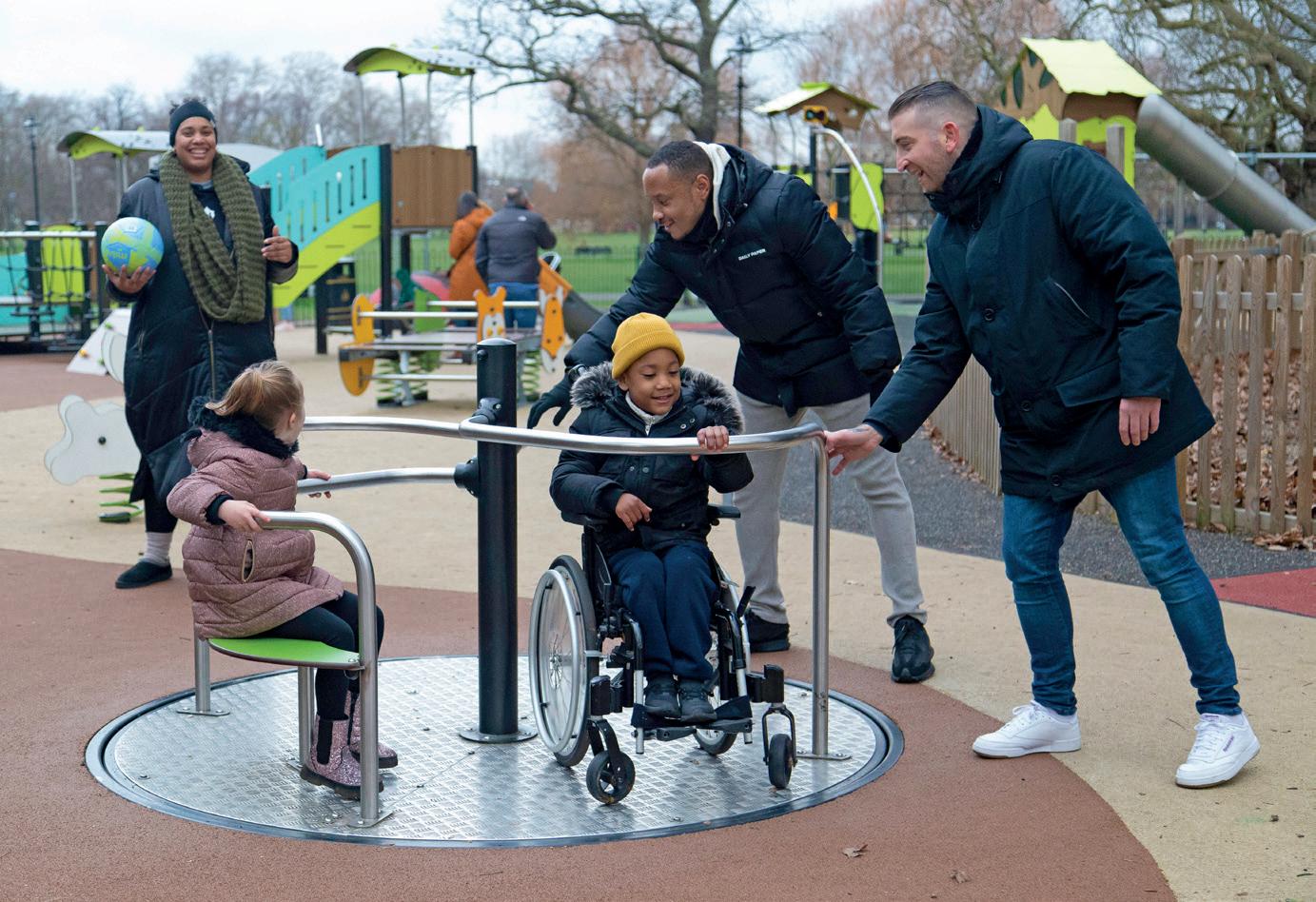
Lambeth Council identified the need for a fully inclusive playground in Clapham Common, as existing play areas did not meet all users’ needs.
The goal was to create an inclusive space that would achieve a PiPA (Plan Inclusive Play Areas) gold award.
Following a tender process, Proludic was awarded the contract to design a 1,400sq m playground where children and families could play together.
The zonal design featured 45 pieces of inclusive play equipment and underwent an
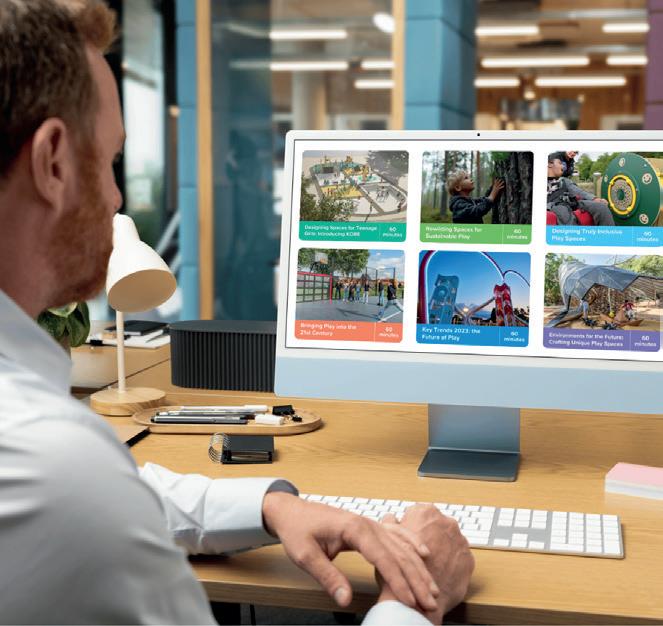
The webinar will explore the merits of ditching a “throwaway culture”
independent PiPA assessment, achieving the highest gold award.
The project – which had a total cost of £405,091, made up of different obligations for S106 funds to be spent in and around the vicinity of the Common – involved local councillors and the Friends of Clapham Common to ensure community needs were met.
The nature-themed design focused on a woodland journey, with Diabolo and Adventure multiplay units, accessible ramps, a sensory path and interactive panels.
In 2021, Frome Town Council commissioned Children’s Scrapstore Bristol to write a four-year play strategy for the town. The recommendations and ambitions of the strategy encouraged the development of parks and green spaces in which people could play, as well as offering the time and permission for everyone in the community to enjoy the social and wellbeing benefits of play.
Since the launch of the strategy, the council has committed to embedding the recommendations laid out in it into its work programme and management plans for green spaces and parks across the town.
Developments have included localised ‘door step’ pop-up play sessions with local providers and a children’s takeover of the town hall, to name but a few.
Among the biggest projects has been the redevelopment of the Showfield playpark, which was funded by Section 106 money.
Designing playgrounds for resilience involves creating spaces that can adapt to the changing needs of children, communities and the environment over time.
Jupiter Play & Leisure is hosting a webinar on the topic, exploring how moving away from a “throwaway culture” can foster truly long-
lasting play areas. Among the areas discussed will be how – by prioritising durable, sustainable materials and flexible design principles –playgrounds can become more than just short-term entertainment and serve as an enduring community resource. To sign up, visit: jupiterplay.co.uk/our-webinars/
Four in 10 children in Northern Ireland and Ireland say a lack of play space is the biggest barrier to their play. The finding comes from a recent survey conducted by PlayBoard NI and the National Childhood Network in the Republic of Ireland.
It also found that half of children and young people do not have enough time to play, more than a fifth have no one to play with in their area and almost a quarter are concerned about traffic. These barriers are standing in the way of children and young people’s well-being and enjoyment of their free time, as 93% agree that play is important, 81% say it makes them happy, and 50% report that it keeps them active. With the newly formed coalition government, the two play organisations say that there is now a critical opportunity to protect, promote and prioritise
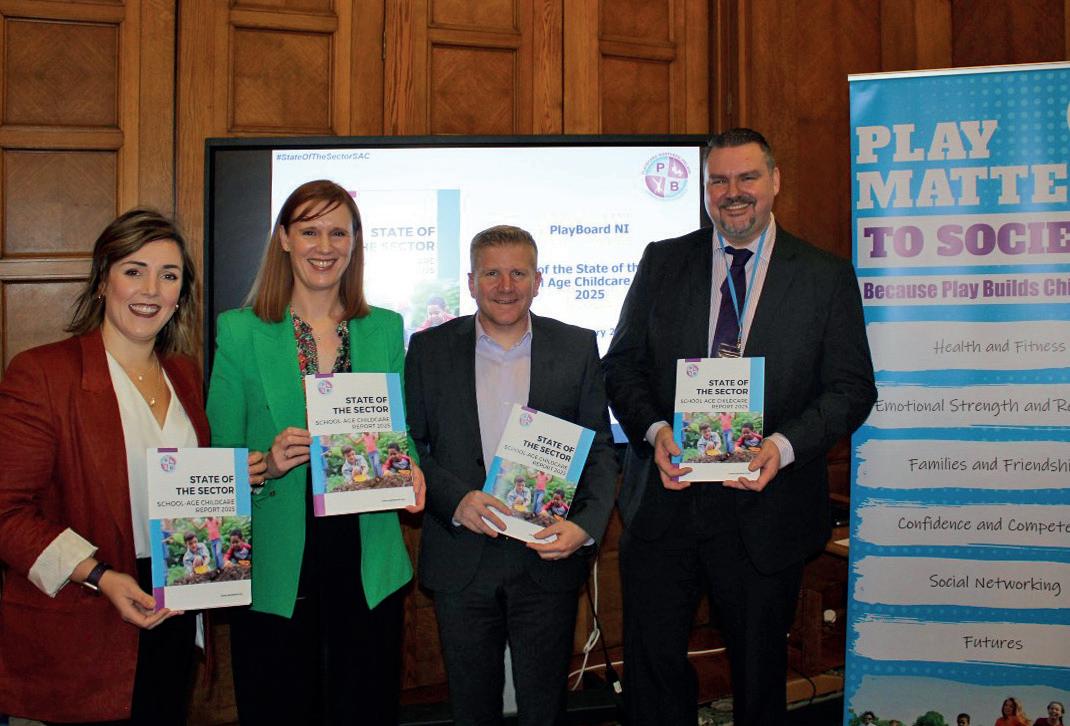
The study shows that half of children do not have enough time to play
children and young people’s opportunities for play and to make a positive impact on their lives.
Alan Herron, CEO of PlayBoard NI, said: “Similar to the feedback from children, our recent survey shows that children and young
people need more places to play, easier access to these spaces, and more time to enjoy them.
“In 2023, the UN Committee on the Rights of the Child identified a number of key actions for the Irish government.”

CocoTurf has been designed to be durable
SAPCA member, Notts Sport, has launched CocoTurf, the world’s first non-plastic artificial turf made entirely from natural coconut fibres. The product aims to offer a sustainable, ecofriendly solution for playgrounds and recreational spaces, combining durability, performance and environmental responsibility.
Notts Sport says it wants to “redefine the concept of artificial turf” by eliminating the use of plastics, microplastics and per- and poly-fluoroalkyl substances (PFAS), all while maintaining the high standards of performance and safety expected from play surfaces.
The materials used in CocoTurf are entirely natural and non-toxic, providing a safer option for outdoor play without the environmental concerns typically associated with artificial turf.
sutcliffeplay.co.uk
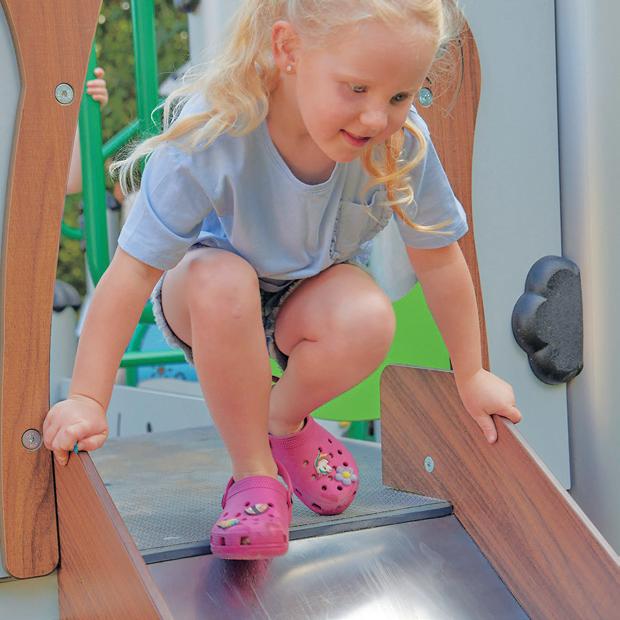
We design play equipment and play spaces that open up play to all abilities.
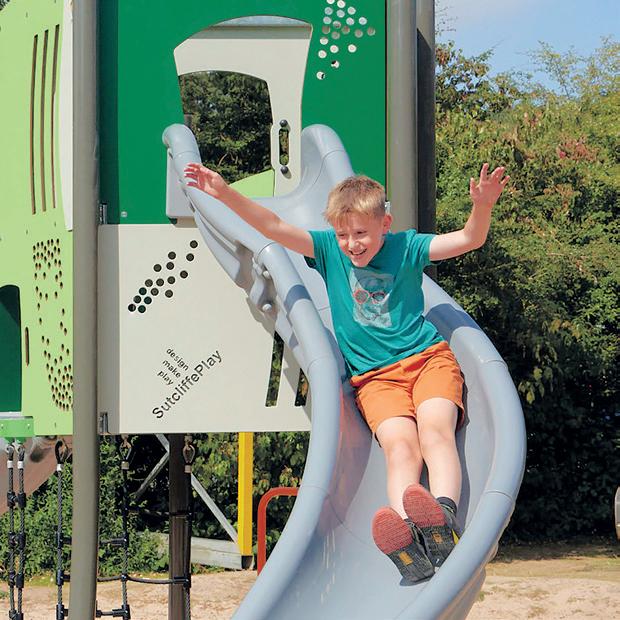
Our skilled engineers and fabricators all take pride in putting quality first.
Your local British Manufacturer leading the way with sustainability, quality and after sales support.





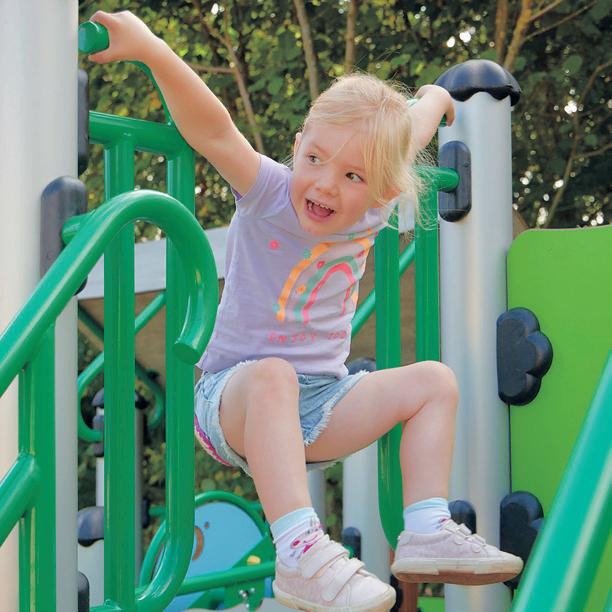
Sourcing and manufacturing locally is the most sustainable solution for all.

Our local designers are ready to consult and help design your next play project, give us a call on +44 (0)1977 653 200 or email info@sutcliffeplay.co.uk
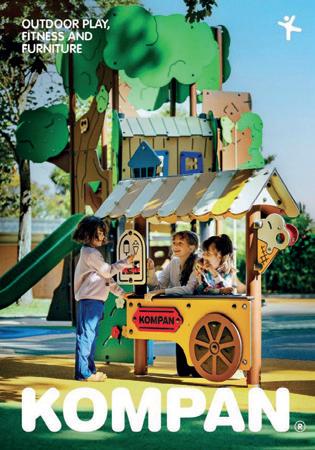

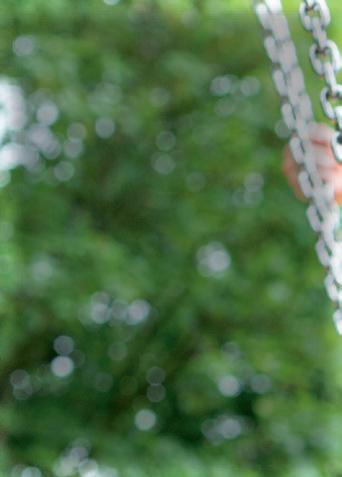







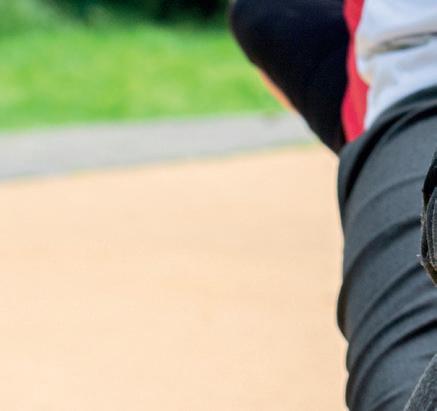
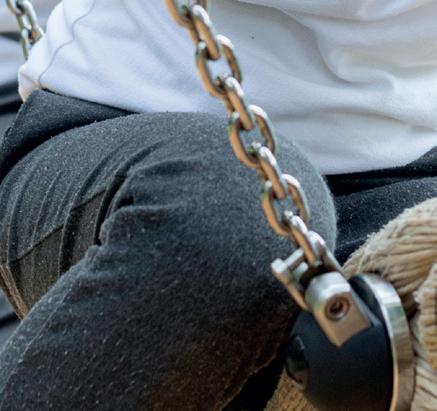




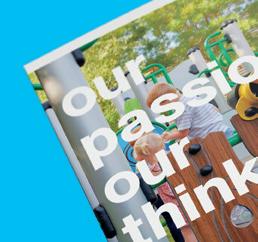
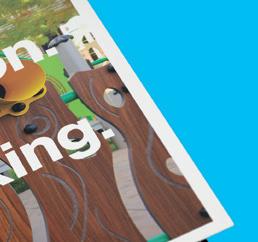

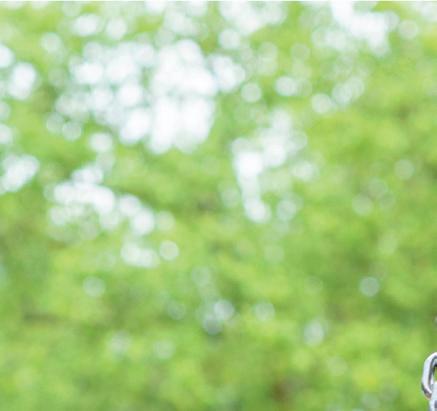
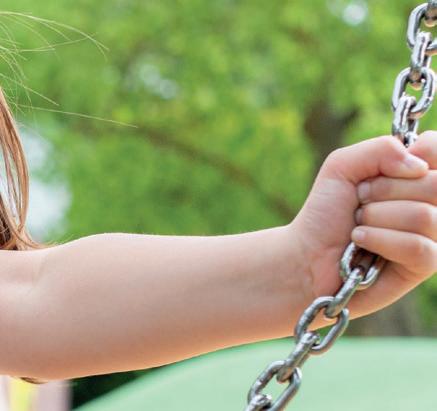

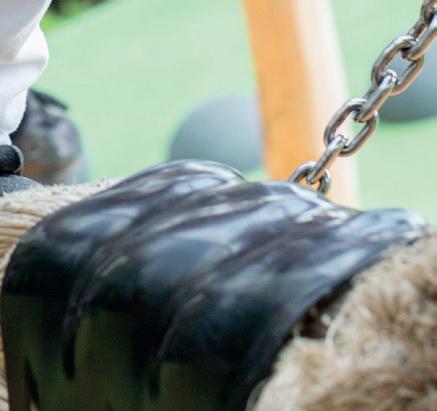


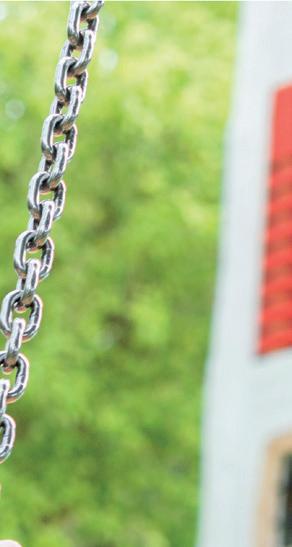




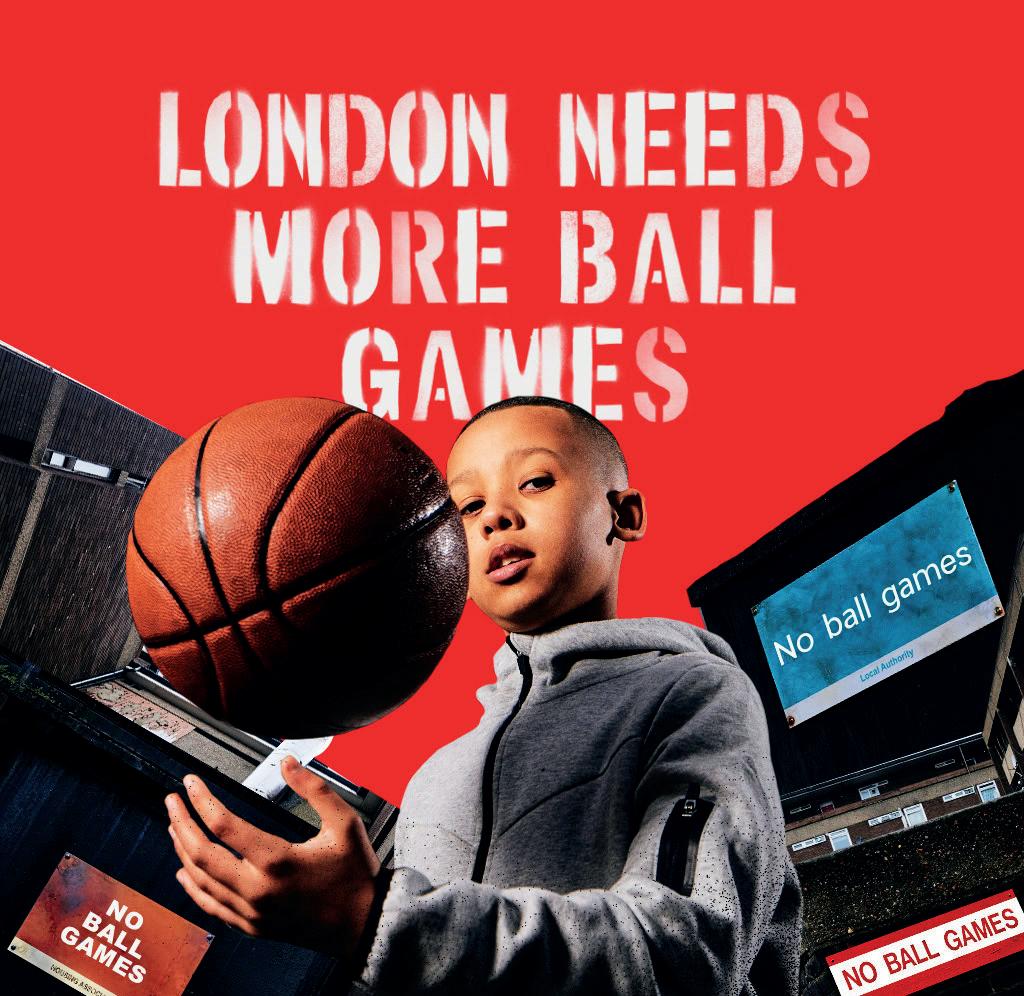
London Sport has partnered advertising agency Saatchi & Saatchi to launch a compelling new campaign, More Ball Games, to highlight the need for unlocking sport, play and physical activity opportunities for all.
The campaign will lobby policymakers to take urgent action to remove outdated and restrictive ‘No Ball Games’ signs that stifle play, physical activity, and community connection across London and England.
It is estimated that around 7,000 “No Ball Games” signs remain across London alone.
The “Banksy-style” campaign looks to remove the thousands of signs, or amend them to “more ball games”, across London – and eventually across the UK.
The campaign was launched in Lambeth, South London, where – with the support of the London Lions basketball team – London Sport helped local youngsters transform an infamous ‘No Ball Games’ sign into an invitation for play.
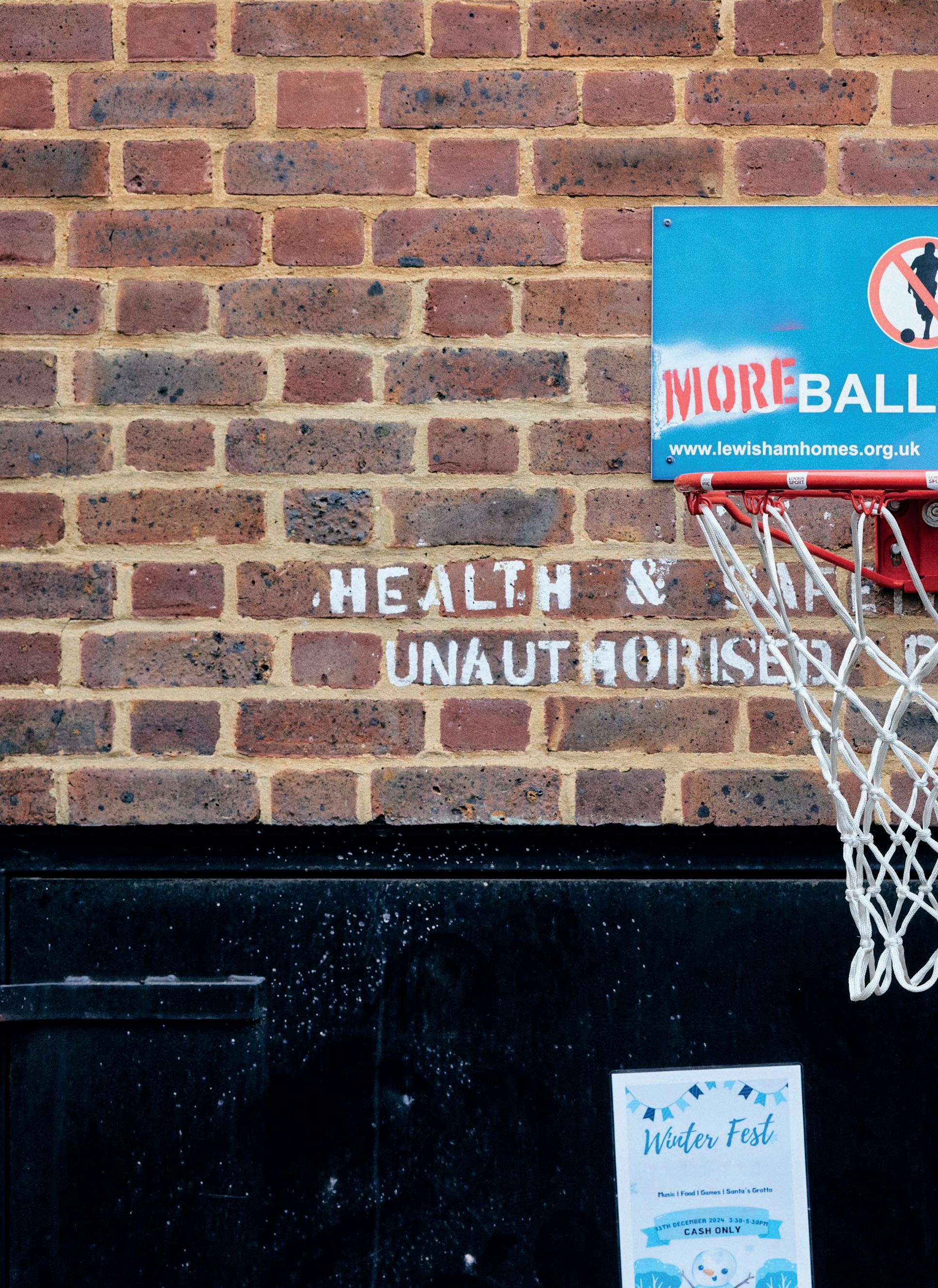
The first reimagined sign, now a fully functional basketball hoop, was unveiled at Lambeth’s Mursell Estate.
Members of the public are invited to join the More Ball Games movement and sign a petition (www.change.org/p/join-the-moreball-games-movement-reclaim-physicalactivity-movement-and-play) to demand the removal of No Ball Games signs, reimagine public spaces and commit to removing systemic barriers to play, sport and physical activity, particularly in disadvantaged communities.
Companies and brands are also encouraged to join the More Ball Games movement and work

No Ball Games signs are a ban on play, a ban on health and a ban on fun
Franki Goodwin, CCO, Saatchi & Saatchi

with the charity to drive change together.
Franki Goodwin, CCO, Saatchi & Saatchi said: “No Ball Games signs are a ban on play, a ban on health and a ban on fun.
“They are placed in the heart of communities full of kids. When you stop to think about how damaging and pernicious they are you can’t believe they have endured for 50 years.
“We are so proud to partner with London Sport to reclaim these spaces and to turn them into resistance movements. We believe this work will drive real social change and we’re honoured to be a part of London Sport’s mission and help tackle the
physical inactivity crisis in the capital.“
Tanya Rabin, Director of Fundraising, Marketing and Communications, at London Sport, added: “Thanks to Saatchi & Saatchi, this campaign will help us elevate the issue and strengthen our advocacy efforts. This is not just about removing signs – it’s about creating a culture shift that prioritises play, movement and physical activity as essential to healthy childhoods, thriving communities, and public well-being.
We can’t do this alone and so are calling on other like-minded organisations to join us in collective action towards a healthier city.”
Eugene Minogue Executive Director, Play England
Seventeen years ago—on 2 April 2008 – the last Labour government launched England’s first, and only, National Play Strategy.
Ed Balls and Andy Burnham, both Secretaries of State at the time, quite literally swung into action at an adventure playground in South London to mark a moment that was set to transform play in England for a generation.

Developed in partnership with Play England, the strategy was bold, ambitious and forwardthinking. Backed by £235 million, it aimed to create 3,500 new play spaces across every local authority – including 30 staffed adventure playgrounds. More than just playgrounds, it set out to embed play into planning, housing, schools, transport and public space.
And crucially, it recognised play as a right – not a luxury – vital to children’s health, happiness and development.
But just two years later, the coalition government pulled the plug on play.
What followed? A wilful collapse in political leadership, and subsequently the steady erosion of play provision and play policy across England – adventure playgrounds disappeared. Playworkers were forgotten. Playgrounds rotted. Inequality deepened. And children have been paying the price ever since.
Seventeen years! That’s an entire childhood, from birth to adulthood, without any national commitment to play.
This is nothing short a generational failure. Millions of children missed out on the opportunities, experiences and freedoms they should have had. And we’re now seeing the consequences – rising anxiety, falling wellbeing, and fragmented communities.
An independent national evaluation had been commissioned to assess the strategy’s impact – and early findings were promising. As the interim report noted, “there is evidence that the new play areas were beginning to have a positive effect on children’s experiences of and attitudes toward play.” But just as this progress began to take hold, the strategy –and the evaluation – were abruptly ended.
Imagine if the strategy had been delivered as envisioned, right through to 2020. What happier, healthier, more resilient shape our children might have been in as they emerged from the pandemic years.
We can and must do better – for our children and future generations.
That’s why Play England boldly continue our call for a new National Play Strategy, this time underpinned by Play Sufficiency legislation.
This is nothing short a generational failure. Millions of children missed out on the opportunities, experiences, and freedoms they should have had
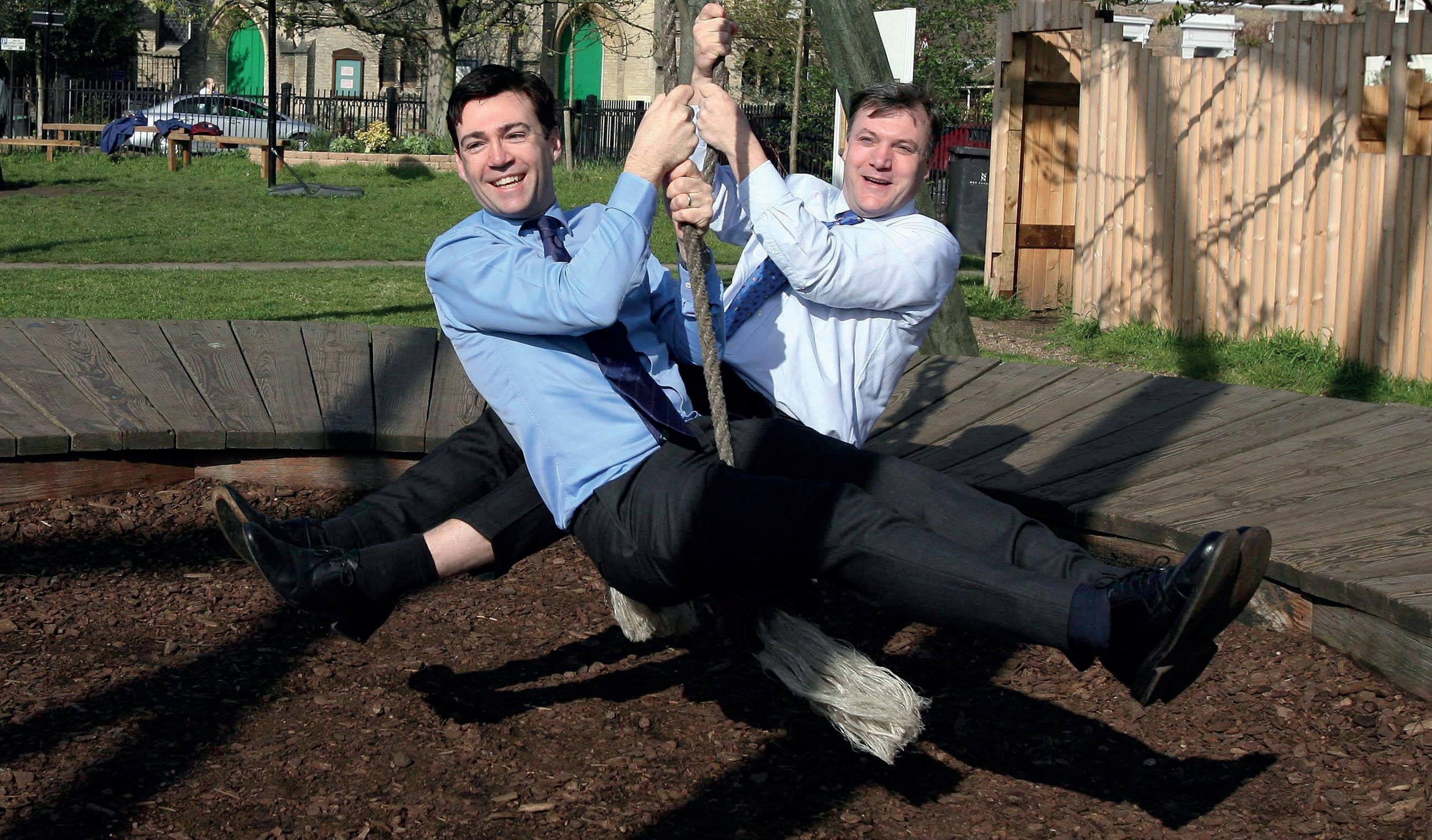
It’s time to finish what we started and give children their childhood back. Every child deserves the time, space, and freedom to play
A growing movement
Momentum is real and growing. In the past year alone, Play England’s advocacy has delivered results:
l Secured legislation to make public playgrounds smoke-free
l Won a key change to the National Planning Policy Framework to protect play spaces
l Put play back on the political agenda, shaping national debate on play
In January, Tom Hayes MP led the first parliamentary debate on play in over a decade. MPs from across the House and the Minister backed our call – not just for a new National Play Strategy, but for Play Sufficiency legislation requiring every local authority to assess and secure play opportunities for all children.
The 2008 strategy was ahead of its time. Its core principles – universal access, inclusive design, local leadership, and meaningful participation – remain rock solid, and even more relevant today than ever.
It’s time to finish what we started and give children their childhood back. Every child deserves the time, space and freedom to play. That’s why, on 13 May, we’ll launch Play England’s new organisational strategy at the Houses of Parliament, hosted by Tom Hayes MP. We’ll bring together over 100 senior figures – MPs, peers, sector leaders, funders and decision-makers – to put play back where it belongs: at the heart of public life.
And that’s not all, it will also mark the launch of a new All-Party Parliamentary Group (APPG) for Play – a cross-party coalition of Parliamentarians committed to building long-term political will and accountability around children’s right to play.
This isn’t just a launch. It’s a turning point – for children, for play, and for Play England. But we can’t do it alone. To build a future where every child can play, we need your support – as funders, partners and champions. Financially. Politically. Publicly.
If you believe in play, now is the time to act. Want to help? Contact: eugene.minogue@playengland.org.uk
In January, Tom Hayes MP secured and led a pivotal parliamentary debate on playgrounds and local authorities. In an exclusive for PlayNation, he outlines how the debate was a result of his passion for play and how he now plans to revive a National Play Strategy for England
On 8 January, I stood up in Parliament to lead the first debate on playgrounds in nearly a decade and the longest for 17 years. I did so because parents, grandparents, and community groups in my constituency of Bournemouth East kept telling me the same story: local parks are broken, fenced off, or simply no longer there – and nobody seemed to care. When children’s play is allowed to deteriorate like this, many families take it as a sign: “Politicians don’t care about us.” Parliament has overlooked something so important to families, and I couldn’t shake the feeling that if politics ignores the basics – like whether your park ever opens or not – people will lose faith in democracy.

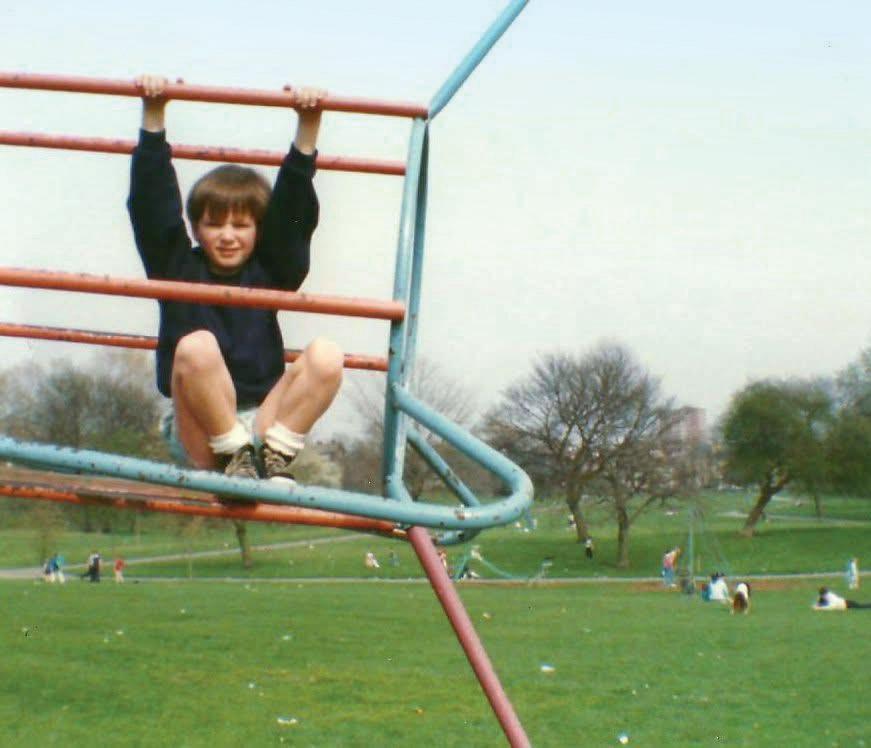

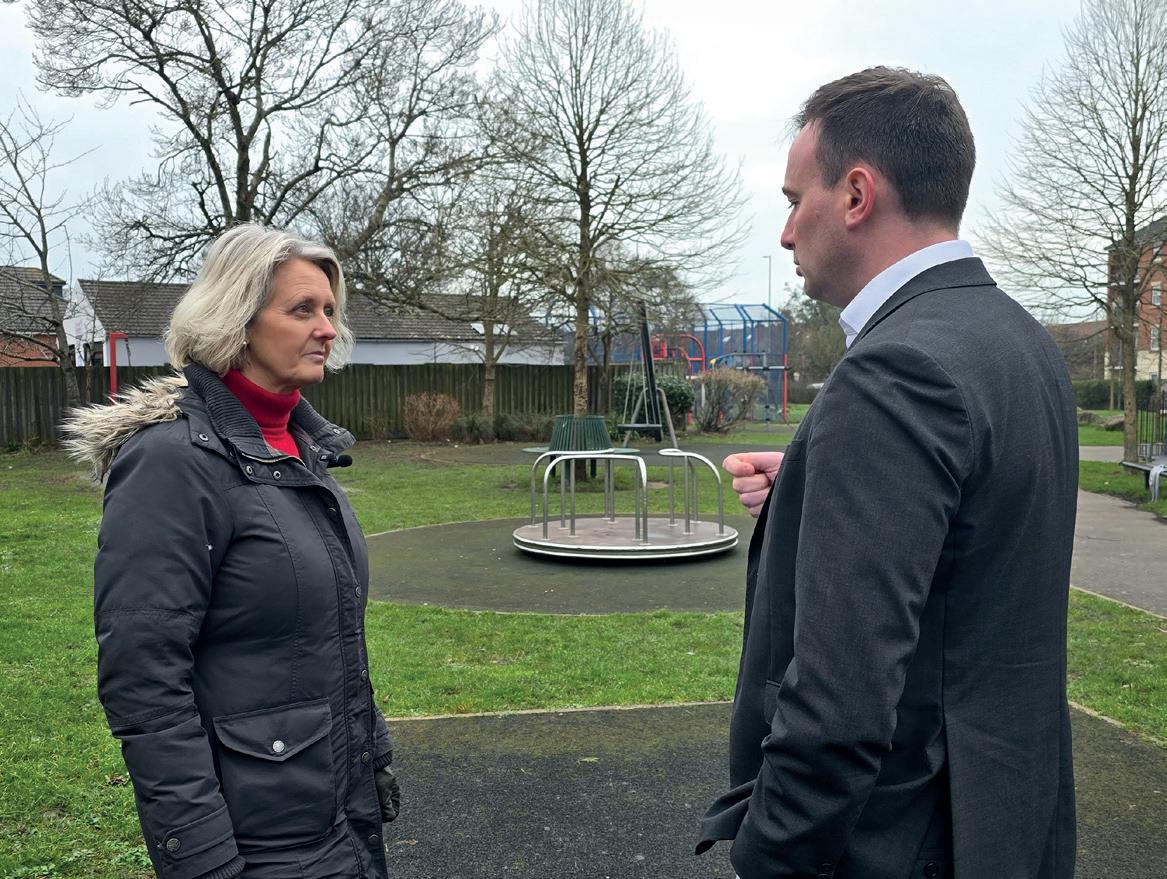
When I launched a survey, I was unsure if people would feel too hopeless to share their stories. I shouldn’t have been worried at all: as of writing, more than 700 people have joined this campaign.
First, I suppose I should go back to why. Despite the tireless efforts of organisations like Play England, playgrounds have quietly slipped off our political radar.
I heard this loud and clear during a recently held roundtable with parents – including some who have launched a grassroots movement to improve local playgrounds. They talked about families living in flats with no outdoor space, the rising cost of leisure activities, and the easy allure of a screen.
Screens are a big problem, but they’ve been seen as a solution to the lack of play

opportunities. They wanted their children to have somewhere to explore, invent games, and just be kids without it costing a fortune.
It was only fitting, then, that when I secured my first Parliamentary debate, it would be on playgrounds. This would be the first to happen in 17 years. To put that in perspective, there are teenagers sitting GCSEs who weren’t alive when Ed Balls and Andy Burnham introduced England’s first (and only) National Play Strategy. What started as a small roundtable in Bournemouth had become something much bigger: an hour in Westminster Hall, with a Minister responding, talking about our playgrounds, and – crucially – cross-party interest in a topic we hadn’t touched in nearly a decade.
I took the words of my constituents, some of the 642 who had responded to my survey before the debate, and brought them to Westminster. Mums who had found solace and friendship on a park bench, grandparents whose grandchildren grew up on monkey bars long disappeared, people who feel strongly about the next generation having somewhere to play.
A sharp reminder that playgrounds aren’t just “nice-to-have”.
Three months on
Local media like Politics South and BBC Radio Solent picked up the story, and I’ve been flooded with messages from parents who felt relieved that someone was finally taking playgrounds seriously. On doorsteps around Bournemouth East, it’s fast become one of
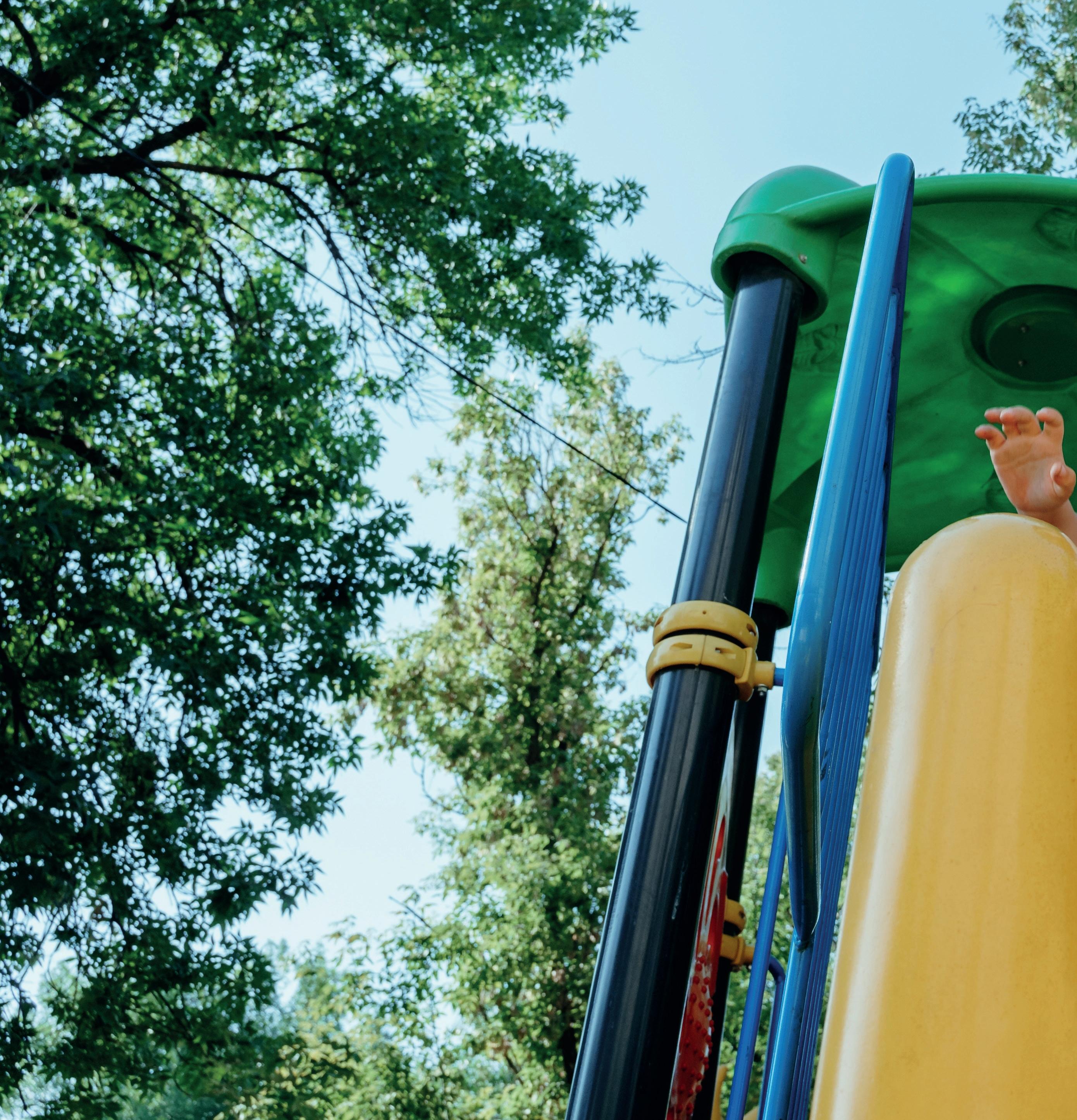
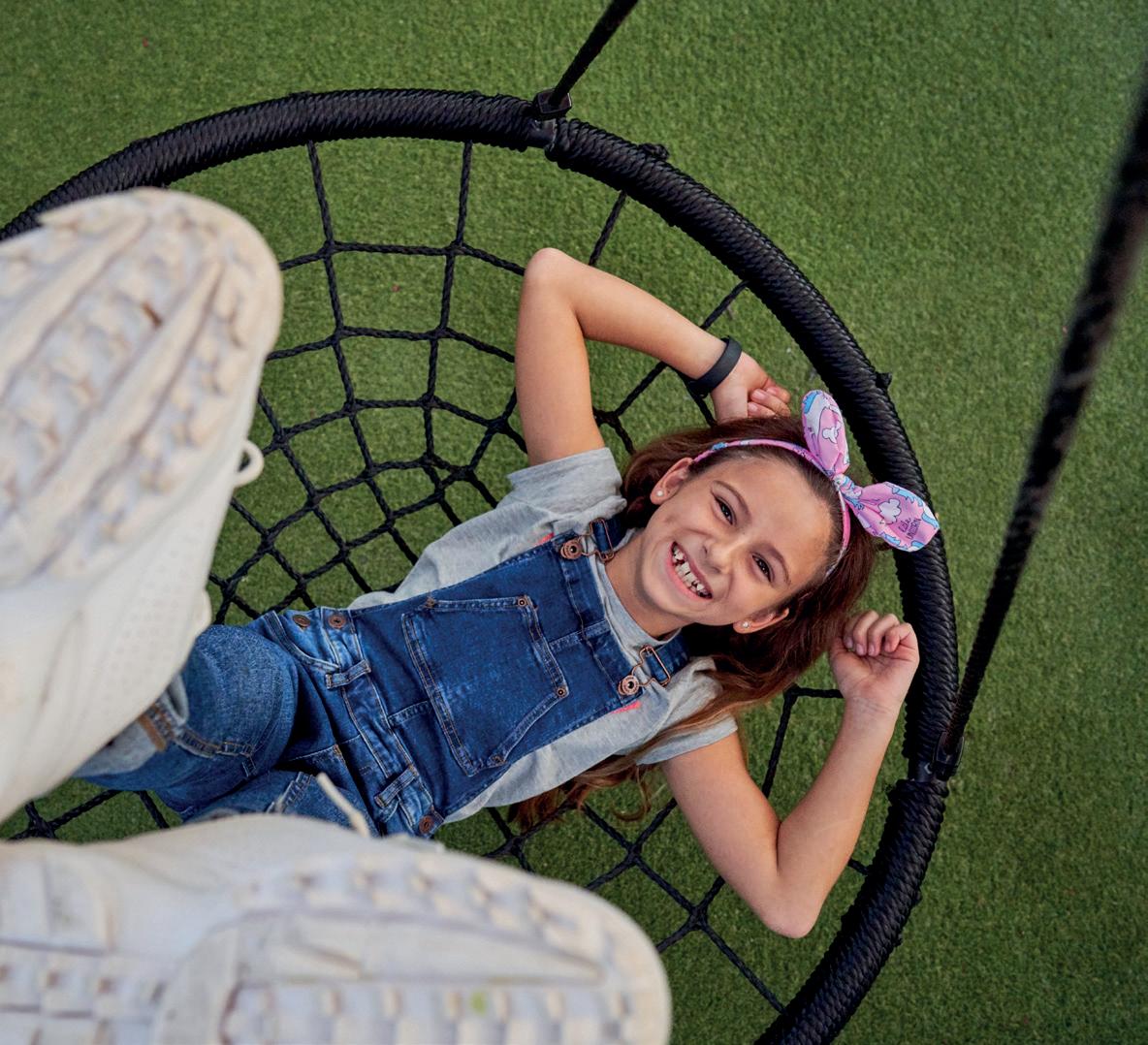
the most frequently discussed issues – right up there with housing, healthcare and rising bills.
Just as importantly, Bournemouth, Christchurch and Poole (BCP) Council has agreed to provide £3.9 million to overhaul and replace play equipment in our area, turning what was an aspiration into a promise. I welcome this investment, but parents don’t need to be let down yet again after their hopes have been raised. I’m pushing them to speed up the repairs so local families can see real improvements sooner rather than later.
For me, the spotlight on playgrounds isn’t just about repairing swing sets. It’s about recognising the role play has in children’s physical and mental wellbeing. That’s why I’ve folded these insights into my work on the Children’s Wellbeing and Schools Bill as one of a handful of MPs scrutinising the draft law. I’ve ensured that play is acknowledged as a key ingredient in healthy childhood development.
I’m also in discussions with the government
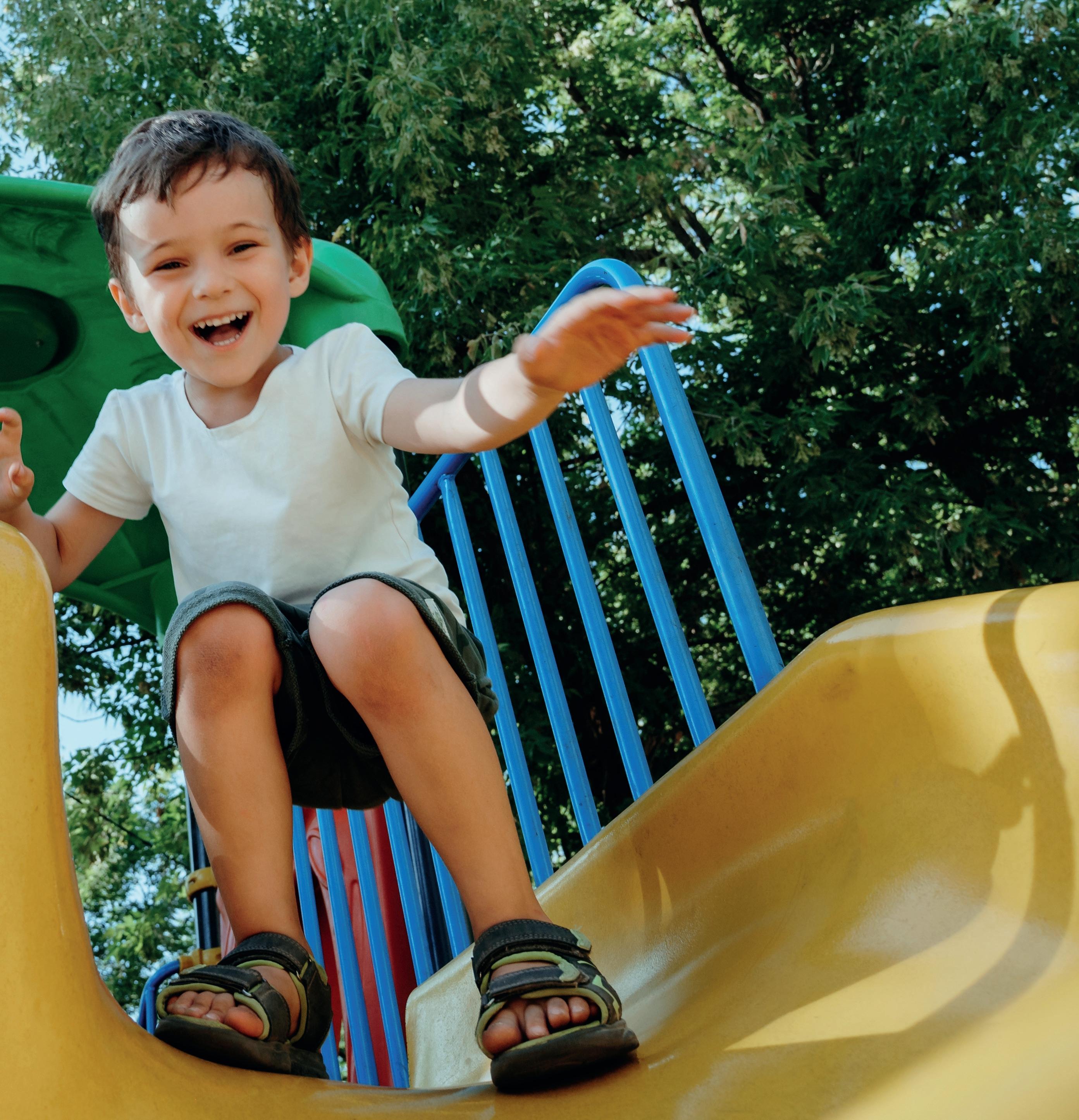
about reviving the National Play Strategy that was effectively shelved 17 years ago, as well as exploring how “play sufficiency” can be embedded into law – much like it is in Wales. If we can make progress on these fronts, local authorities could be required to treat playgrounds as essential infrastructure, opening up further funding streams and bringing new life to run-down parks across the country.
This is all so important, especially with growing concerns about the impact of social media and extensive mobile phone use on children. So many of the concerns parents have raised with me about these issues are explicitly linked to play and playgrounds. The biggest one seems to be that part of the reason children are on screens is because there’s nowhere for them to play. An unscientific survey of pupils at a local school in Bournemouth saw nearly all of them say that they would spend less time on electronic devices if their local playgrounds were better. As the saying goes: build it and they will come.
What has struck me most is how many parents link playground neglect to a deeper sense of being overlooked. If we can’t fix a single broken roundabout, how can we tackle monumental challenges like housing shortages or NHS waiting lists? On the flip side, by showing we care about something as tangible and everyday as local parks, we help restore confidence in the idea that politics can respond to real-life needs.
Three months on from the debate, I’m determined to keep the momentum up. Whether it’s pushing BCP Council to accelerate repairs or lobbying for a refreshed national play strategy, my aim is simple: to ensure that children in Bournemouth – and everywhere else – have safe, welcoming spaces to be active, sociable and imaginative.
Because if we want to raise a generation that values community and civic life, we can’t ignore something as fundamental as a place to play.
The publication of the Play Commission’s interim report, State of Play, has been hailed as a signi cant milestone in the journey towards improving the status of play for children across England

Paul Lindley OBE
We can’t continue to watch as our children become increasingly unhealthy and unhappy
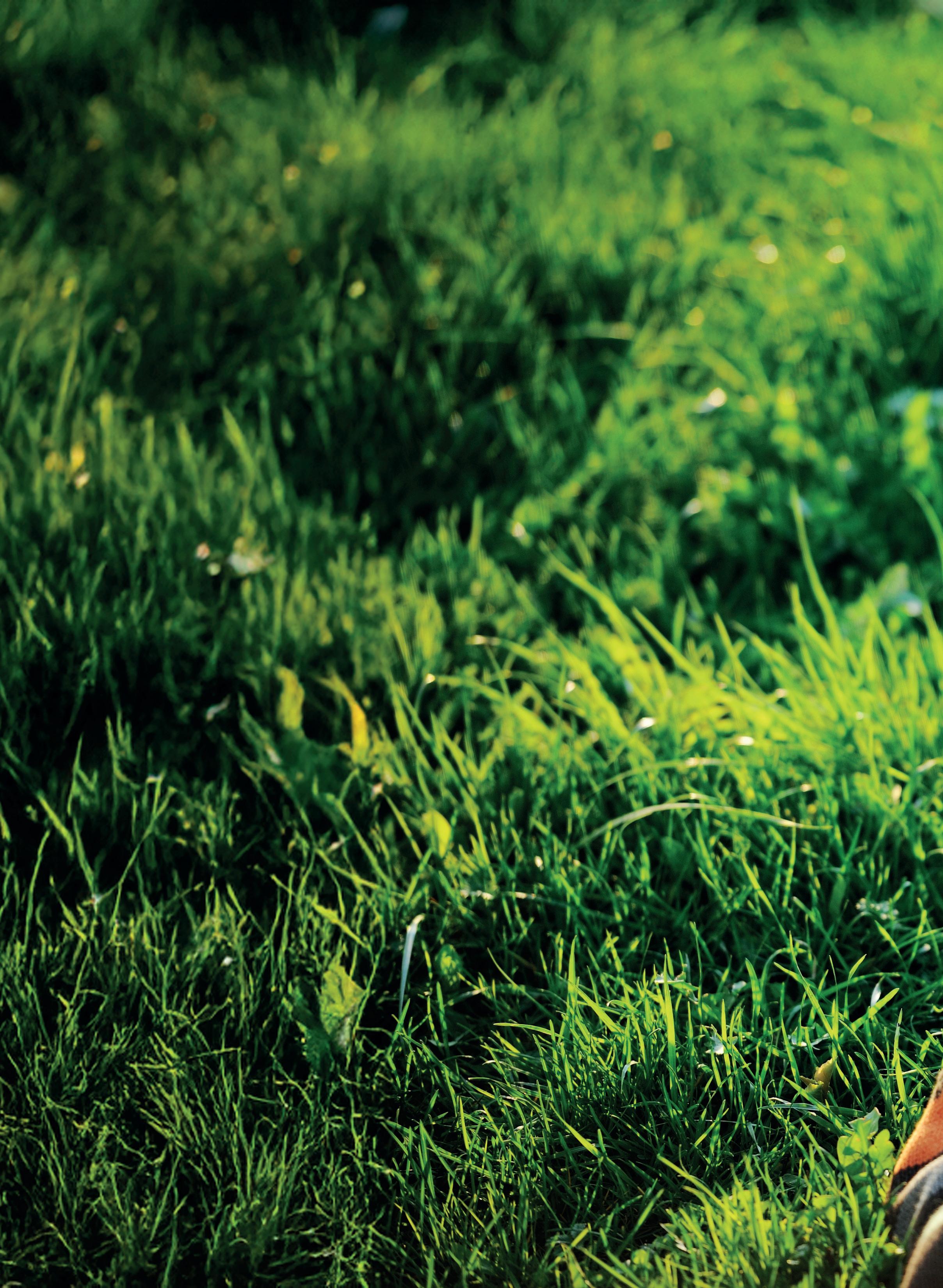

The Raising the Nation Play Commission published its interim report, State of Play – Raising the Nation, in February. The play sector hailed the publication as a “significant milestone” in the journey towards elevating the status of play in society. The interim report provides initial findings and recommendations, with the full report – covering all themes of the Commission – set to be published on 11 June 2025.
The Commission was launched in June 2024 by its chair, entrepreneur and campaigner Paul Lindley OBE – founder of Ella’s Kitchen, the UK’s biggest baby food business. It is working in partnership with former Children’s Commissioner Baroness Anne Longfield’s Centre for Young Lives think tank.
The commission’s interim report reveals some of the growing barriers to play in England, including playground closures, concerns about traffic and safety, cuts to park budgets and play facilities, and the growth of a ‘No Balls Game’ anti-play culture. It warns that generations of children are spending less time playing, less time outside, less time with their friends, and more time inside glued to digital tech, at a time when millions of children are growing up unhealthy, unhappy, and not ‘school ready’.

Play is a crucial tool for reversing the growing number of children with obesity, mental ill health and developmental problems. It’s time to get our children playing again
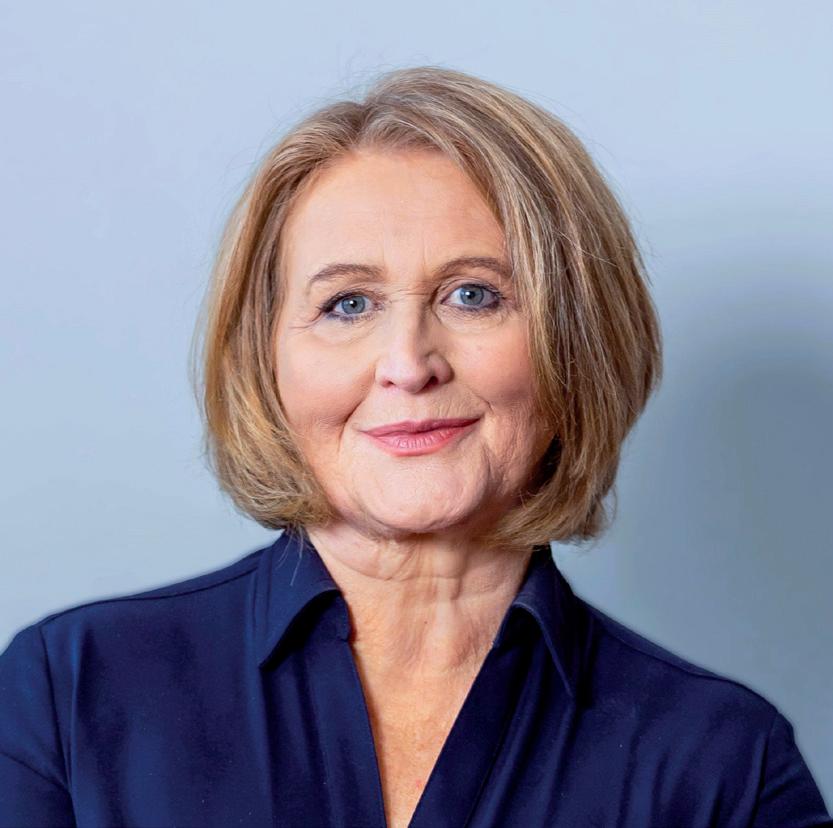
Baroness Anne Longfield CBE
Play is being squeezed out of their lives, and the consequences for their mental and physical health, and their development, are dire
The report sets out the huge benefits of play for children and calls on the Government to introduce a National Play Strategy to ‘get children playing again’, alongside a legally binding requirement for councils in England to provide play facilities and opportunities for children, new funding for playgrounds, and a review into the use of ‘No Ball Games’ signs.
The Interim Report lays down foundations for a play strategy for England to be proposed to the Government in the commission’s final report in June. The report argues that a National Play Strategy is more urgent than ever, with around four in 10 children living with an unhealthy weight, more than a quarter of children overweight (including obese), one in five children and young people in England struggling with a diagnosable mental health problem, and around one in three children not school ready.
The report also reveals how, despite the immense benefits of breaktimes to children’s development and learning, play time has been squeezed out of the school day over a 25-year
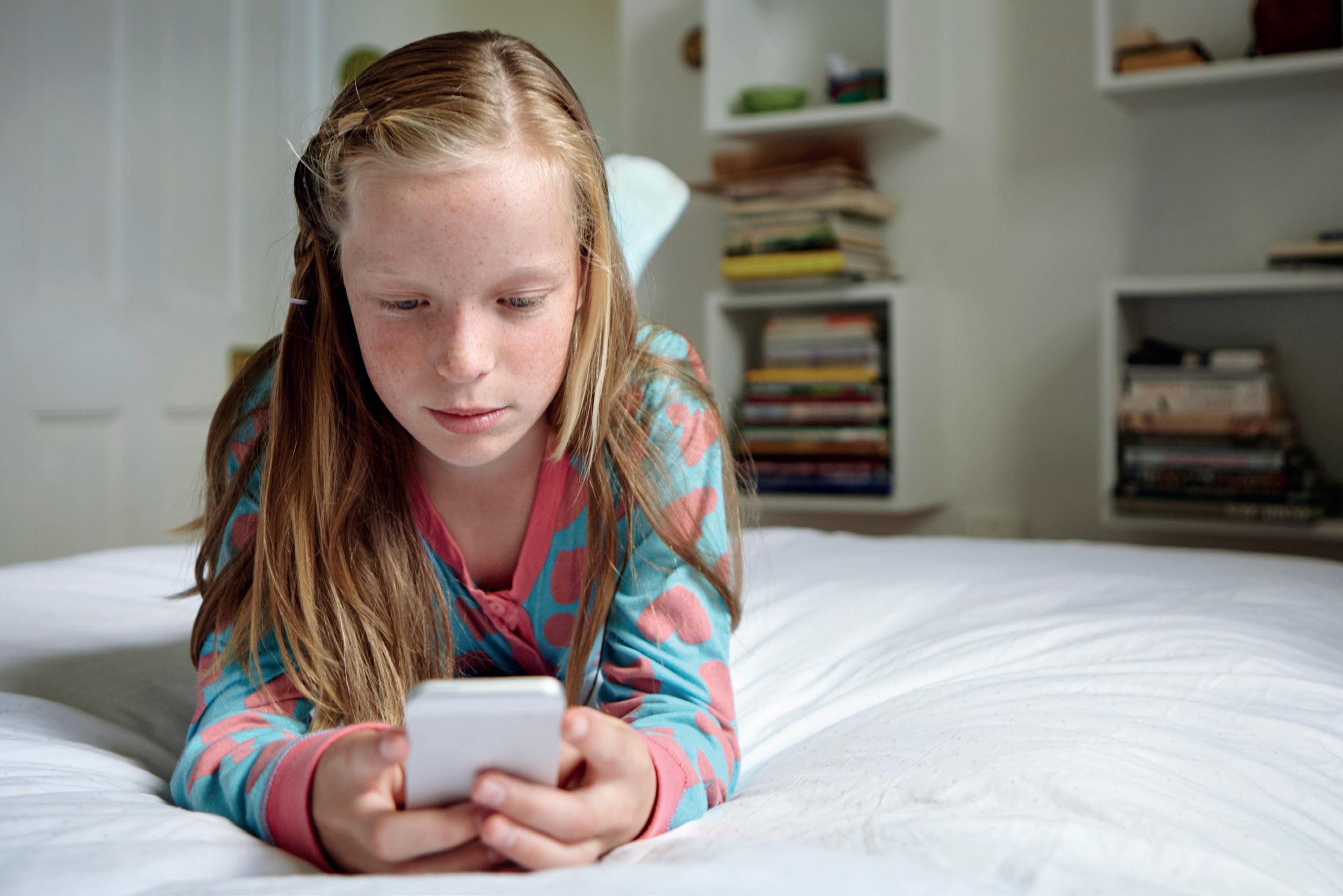
period. It analyses four national surveys carried out in 1995, 2006, 2017, and 2021, shared with the Play Commission, which show the significant decline in average total breaktime in minutes per day in England’s schools between 1995 and 2021.
Baroness Anne Longfield CBE, Executive Chair of the Centre for Young Lives and former Children’s Commissioner for England, said: “Generations of children are now growing up spending less time playing, less time outside, less time with their friends, and more time inside, glued to phones and social media.
“Play is being squeezed out of their lives, and the consequences for their mental and physical health, and their development, are dire.
“This interim report puts forward positive, workable, evidence-based proposals to support those aims, including a crossGovernment National Play Strategy for England that would boost those ambitions.”
According to the report, the youngest school children in England have lost 23 minutes breaktime a day, on average, when compared to their counterparts in 1995. The average total time dedicated to breaktime in a day fell by 18 minutes over the same period for older primary school children, and by 17 minutes for Key Stage 3 children.
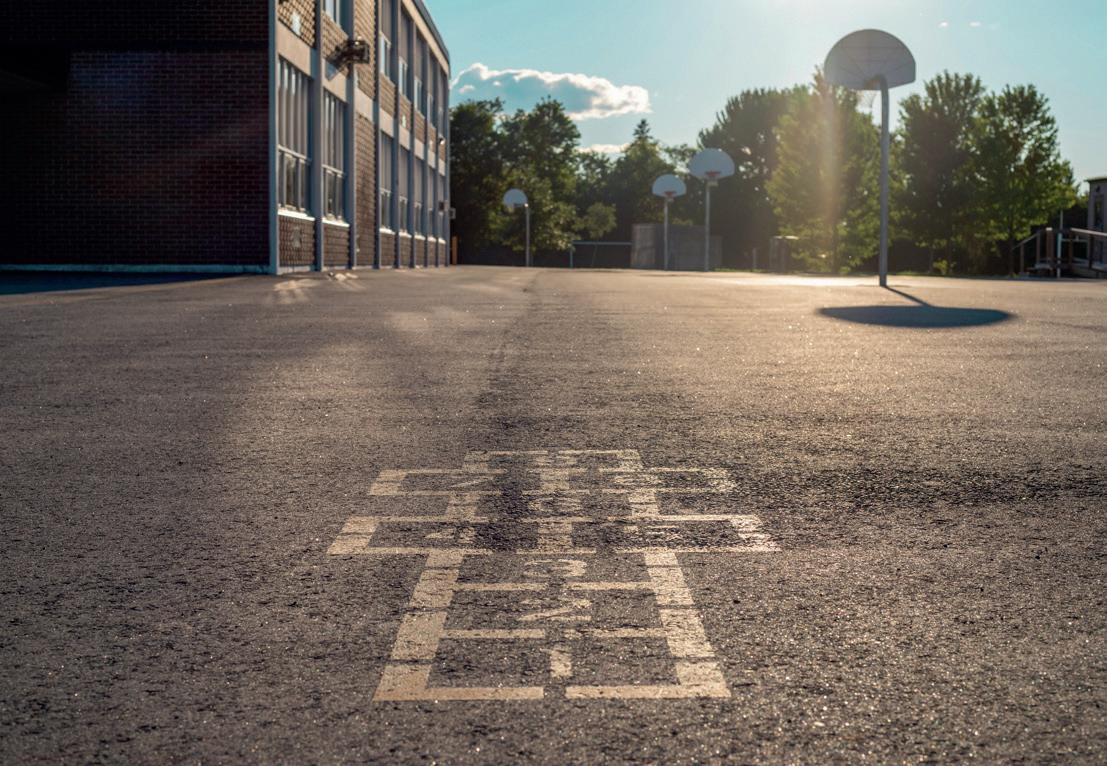
It also shows how breaktimes have fallen most sharply in primary schools in the most deprived parts of England. Schools with a higher proportion of children in receipt of Free School Meals have shorter breaktimes. While state secondary schools have seen a significant fall in breaktime, there has been no discernible decline in the time devoted to play in England’s private schools since 1995.
The report argues that an overbearing national curriculum and highly pressurised accountability system has led many schools and teachers to view breaktimes as nothing more than a loss of valuable teaching time. It also warns that many schools are punitively withholding breaktimes from children for behavioural reasons.
The report also highlights how children have been “designed out” of public spaces. The spaces that could accommodate them are disappearing and nothing is being put in place to replace them.
“In the public realm, formal spaces to playsuch as local playgrounds - have been closed at an alarming rate,” the report states. “Playing out on local streets in the community has also declined, as a result of more cars now occupying these spaces and concerns about crime growing.
“Across all spaces, whether it be local playgrounds or public space, the planning system often overlooks the needs and views of children, creating spaces which are inaccessible, unsafe, or even unwanted. Typically, this disproportionately impacts girls, children with special educational needs and disabilities (SEND), children from low income backgrounds, and ethnically minority children.”
To tackle this, the report recommends a process which would guarantee investment into spaces designed for children
“To ensure children have safe places to play, we support the introduction of a Play Sufficiency Duty, to provide a framework and guidance for local authorities to protect and provide opportunities to play,” the report says.
“This should encourage creativity at a local level to adapt and evolve places, such as by opening school playgrounds for wider community use outside of the school day. We also recommend a realignment of the planning system, so that it is able to serve children and young people’s needs. This includes requiring developers to consult children on their views on the spaces which they will live in and use, as well as ensuring that they recognise the need of all children and young people to have access to outdoor and green space.”
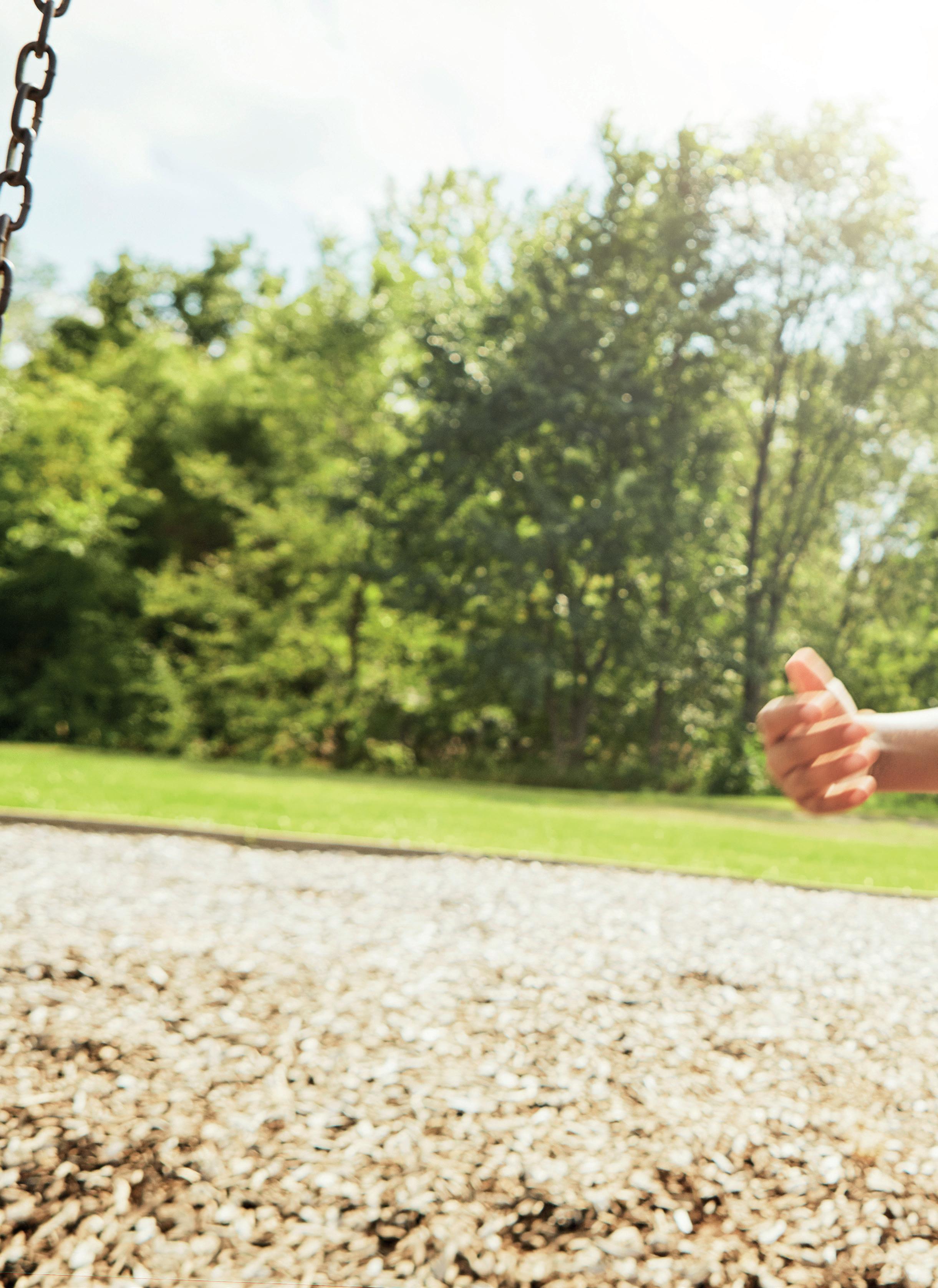
The report recommends a process which would guarantee investment into spaces designed for children
The full and final report will be published in June and the message of it will be simple: England needs a play strategy. The publication date is no coincidence either – 11th June is the International Day of Play.
Paul Lindley OBE, Chair of the Raising the Nation Play Commission, said: “Play should be a crucial part of growing up. It improves development, physical and mental health, social skills, and school readiness.
“Yet our Commission has heard countless examples of how England’s children are missing out on the same play opportunities that their parents and grandparents enjoyed. An anti-play, ‘No Ball Games’ culture has emerged. Hundreds of playgrounds have closed, half of all youth centres have gone, school playing fields have been sold. Our streets and public spaces feel less safe, and children are losing hours of play time at school every month.
“We can’t continue to watch as our children become increasingly unhealthy and unhappy. Play is a crucial tool for reversing the growing number of children with obesity, mental ill health, and developmental problems. It’s time to get our children playing again.”


The State of Play report makes a range of evidencebased recommendations to government to reverse the loss of play time in schools, including:
● Calling on government to establish the first National Play Strategy for England since 2008 led by the Department for Culture, Media & Sport. The strategy would set out a clear, long-term vision to ensure children can easily access and enjoy places to play in public, at school, and at home.
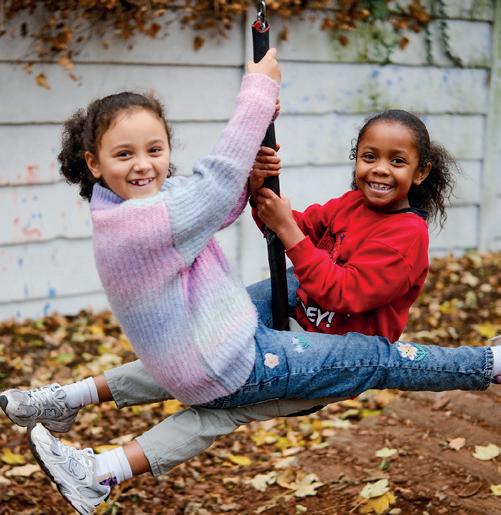


● New statutory Department for Education guidance to ring-fence time within the school day for breaktimes and lunchtimes, and support for The British Psychological Society’s call for an extra 10 minutes of play to be restored to the school day.
● Ofsted to include play sufficiency – specifically time to play - as a measure of school performance to encourage schools to boost play in school

time and reward those schools who value play highly.
● School teachers, staff, and supervisors to receive high-quality and mandatory play training to enable healthy and active breaktimes and playful learning.
● Ring-fenced funding for local authorities to maintain and renovate playgrounds and provide new ones in playground deserts.
● The adoption of a legally binding Play Sufficiency Duty for England, bringing England into line with Scotland and Wales, to ensure that local authorities provide sufficient play opportunities and to communicate them to parents and families.
● A Review of the use of ‘No Ball Games’ signs and update byelaws for Parks and Open Spaces to create a more welcoming, healthier, and active environment.
● A national campaign to encourage and support parents to play with their children, as part of the drive to improve school readiness.


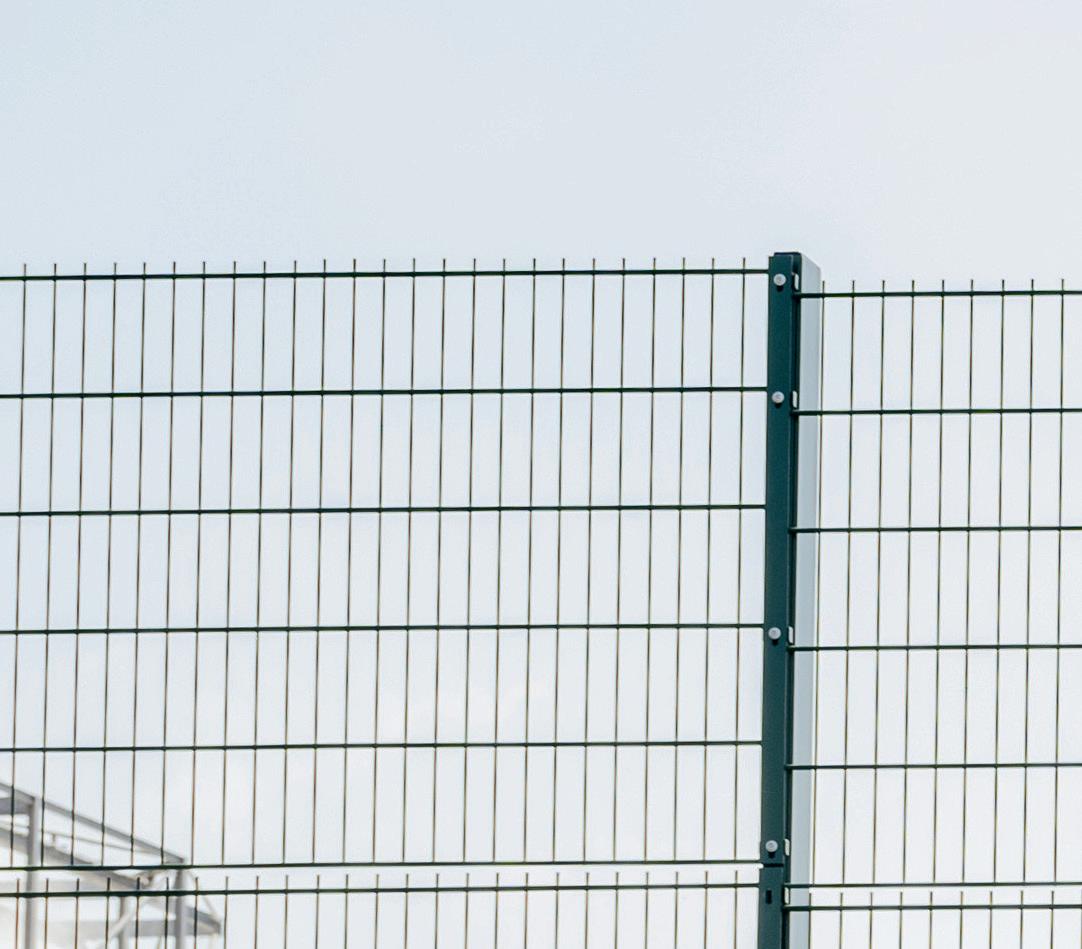
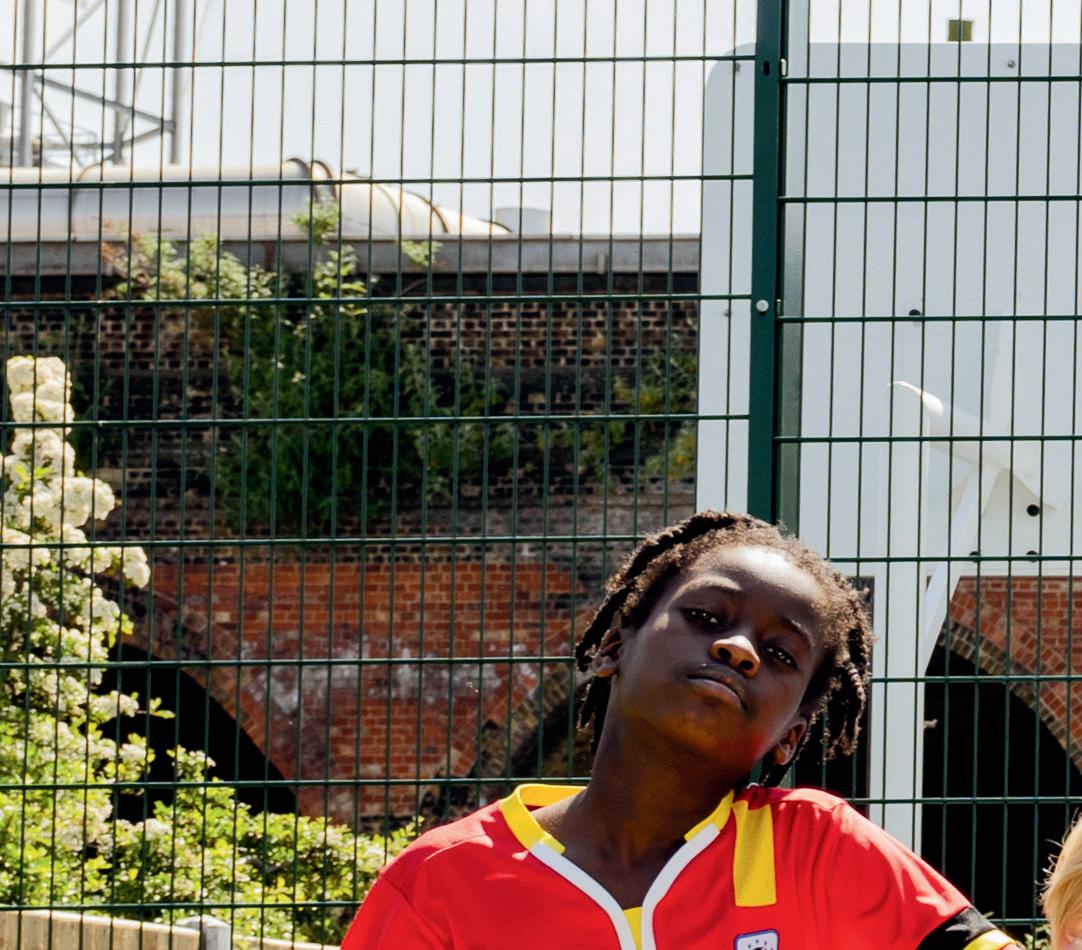
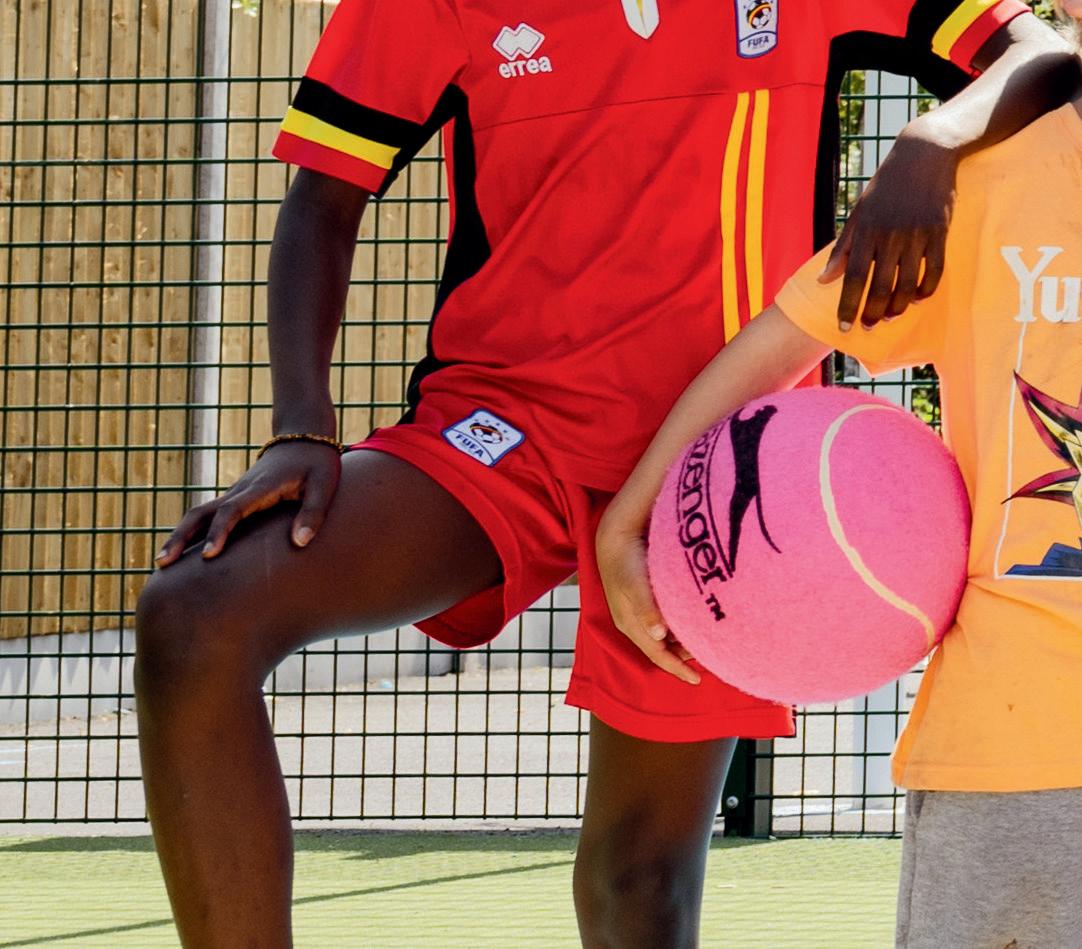
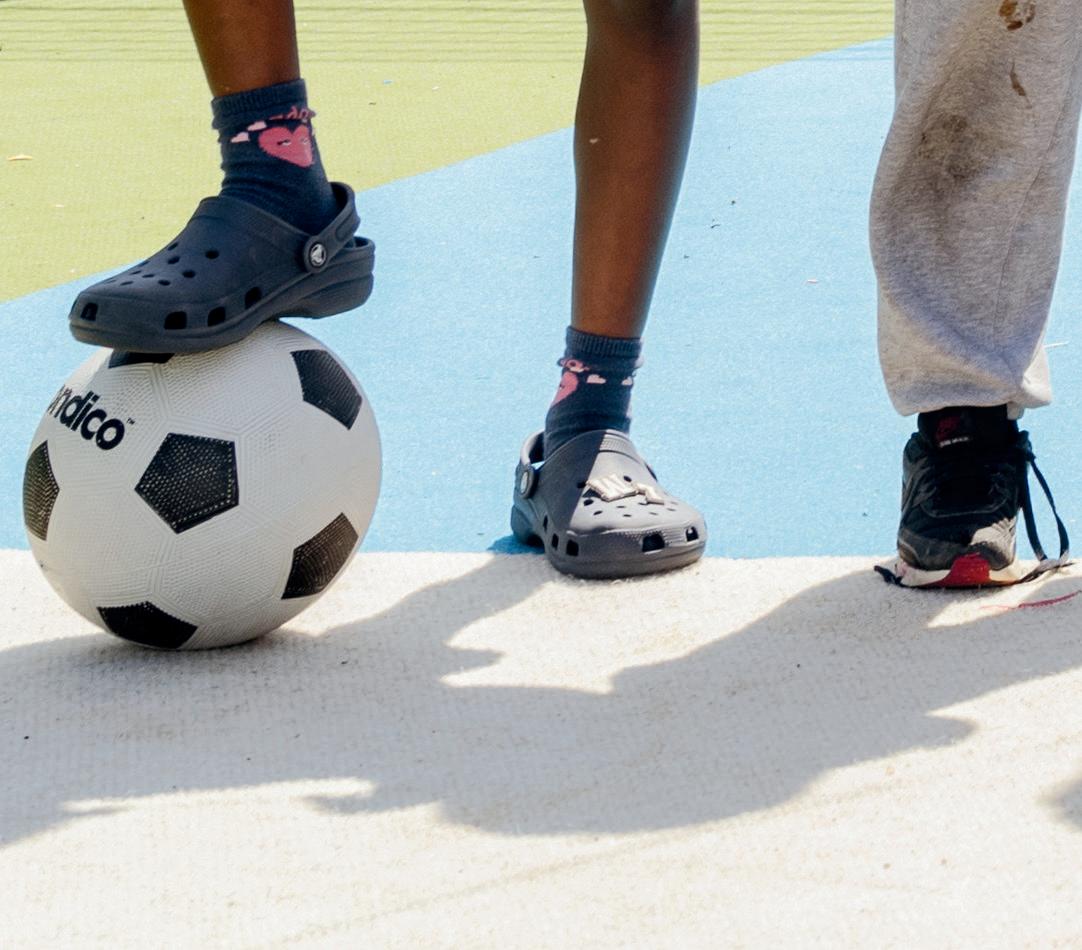
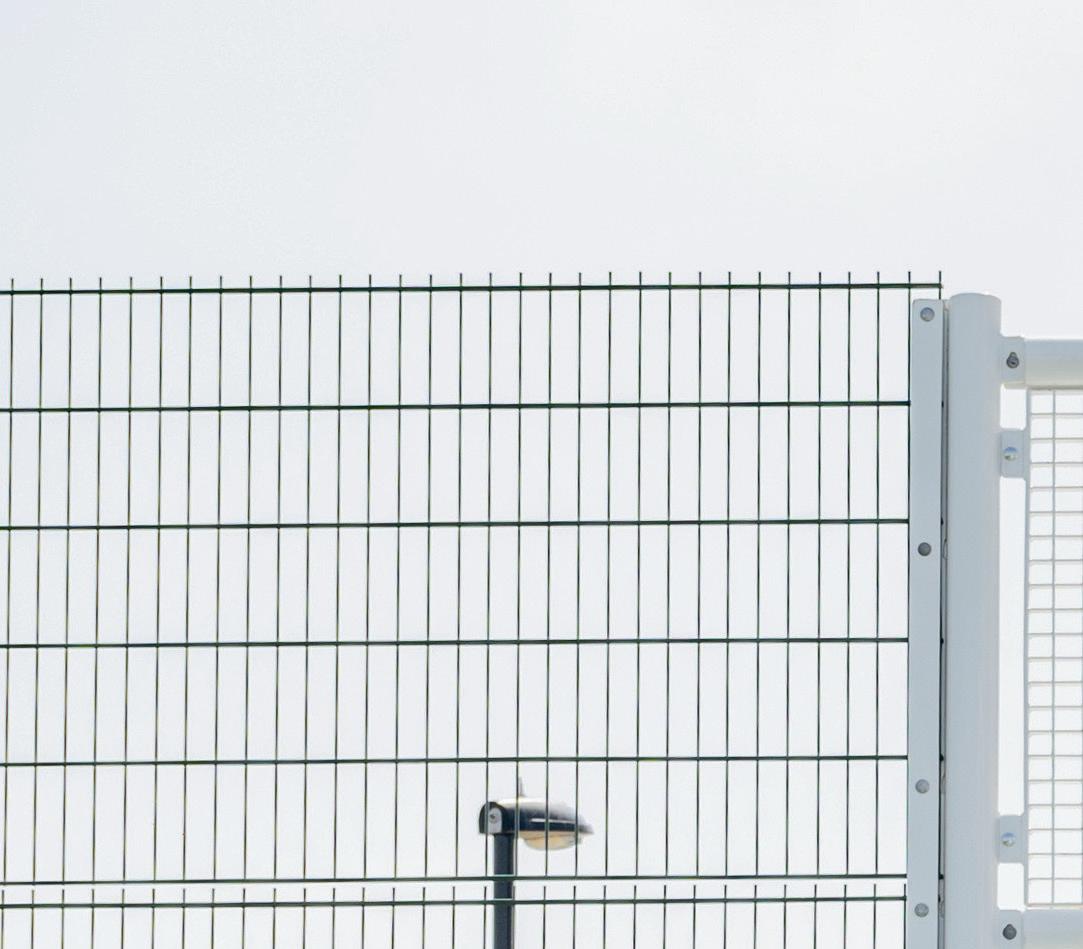
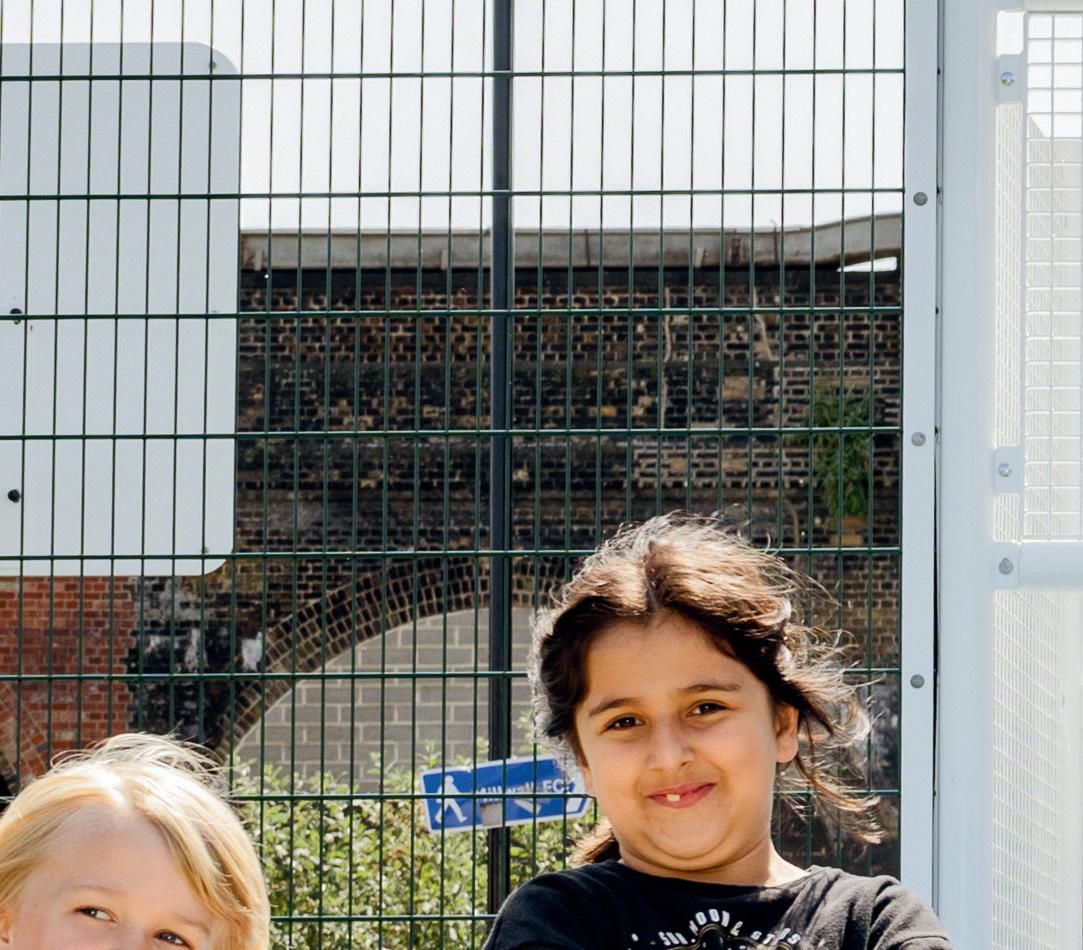






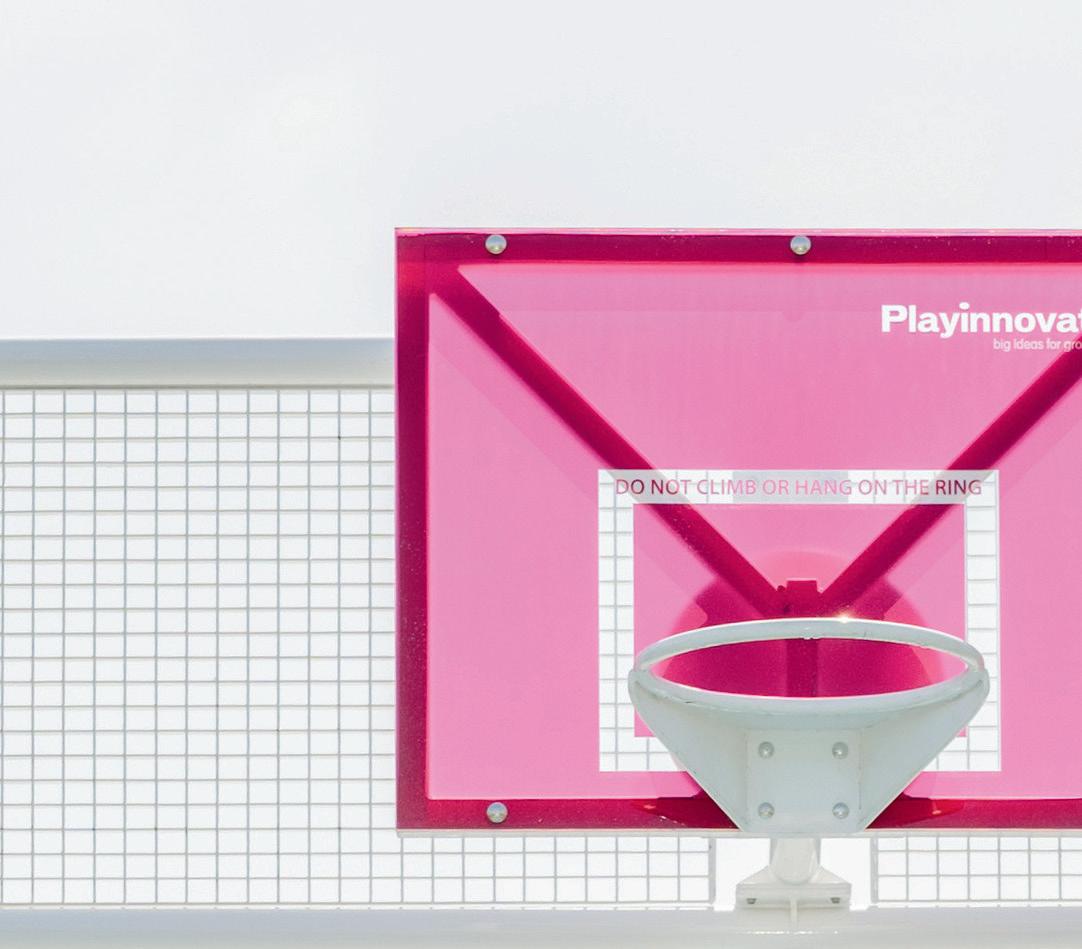
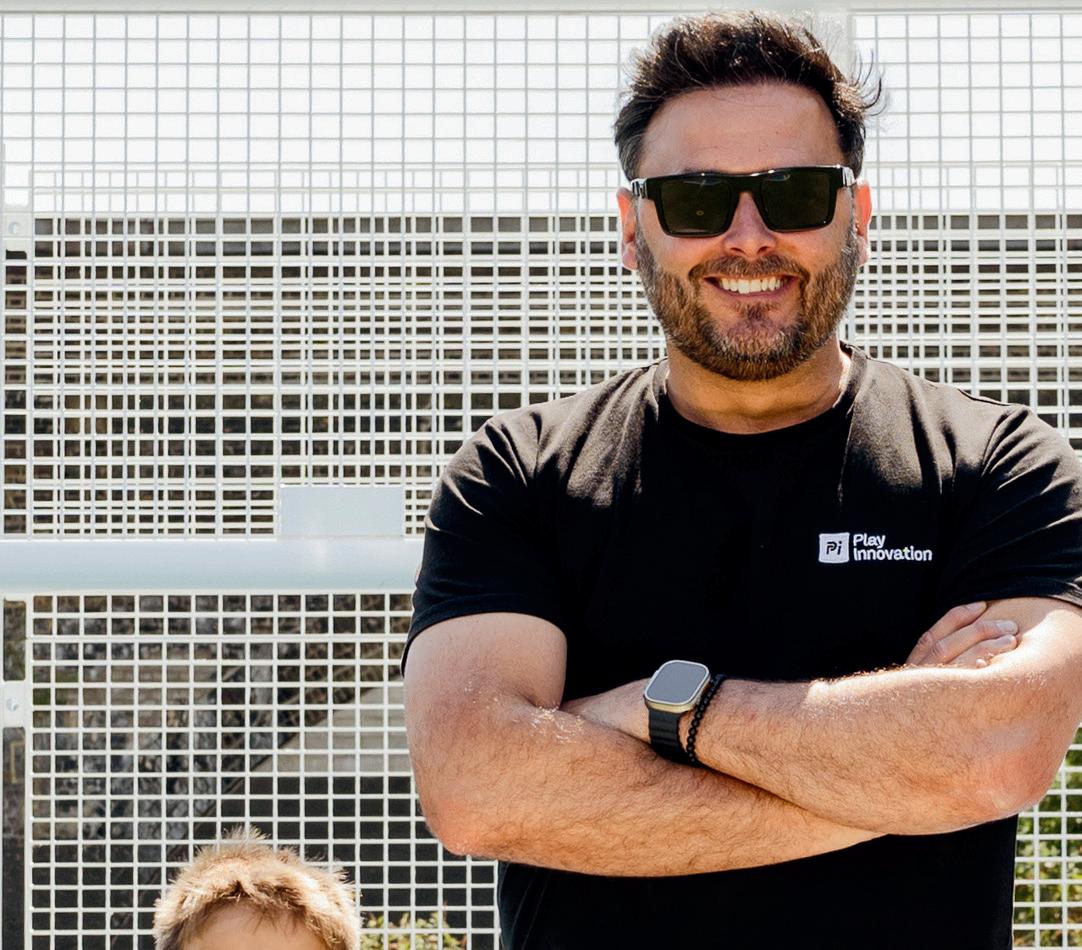
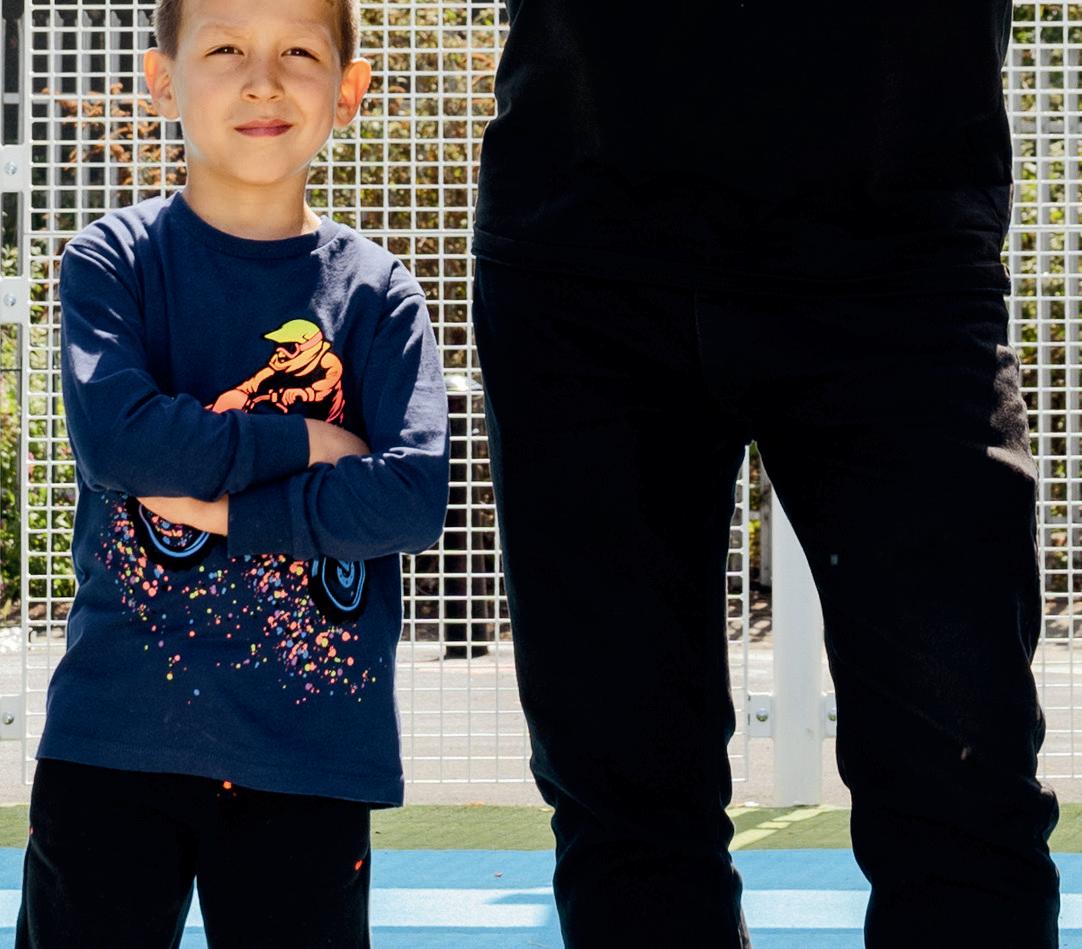








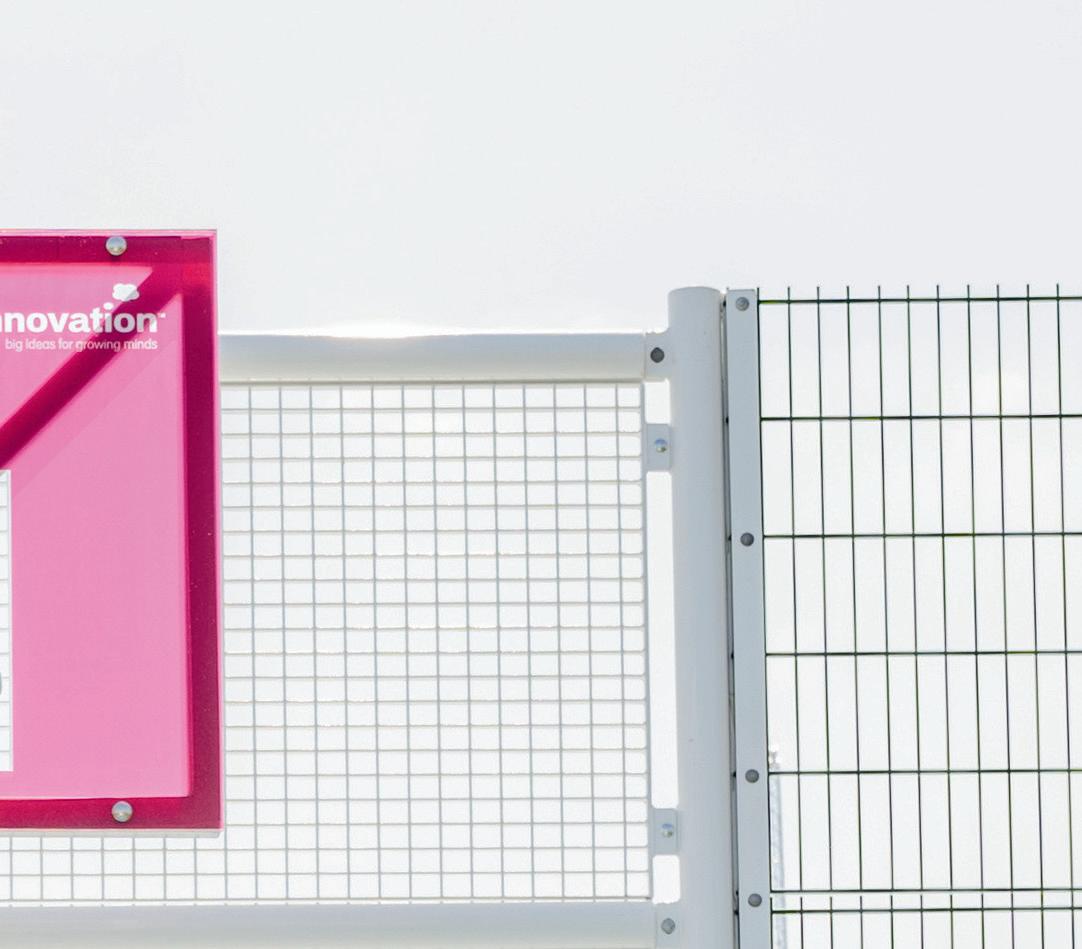


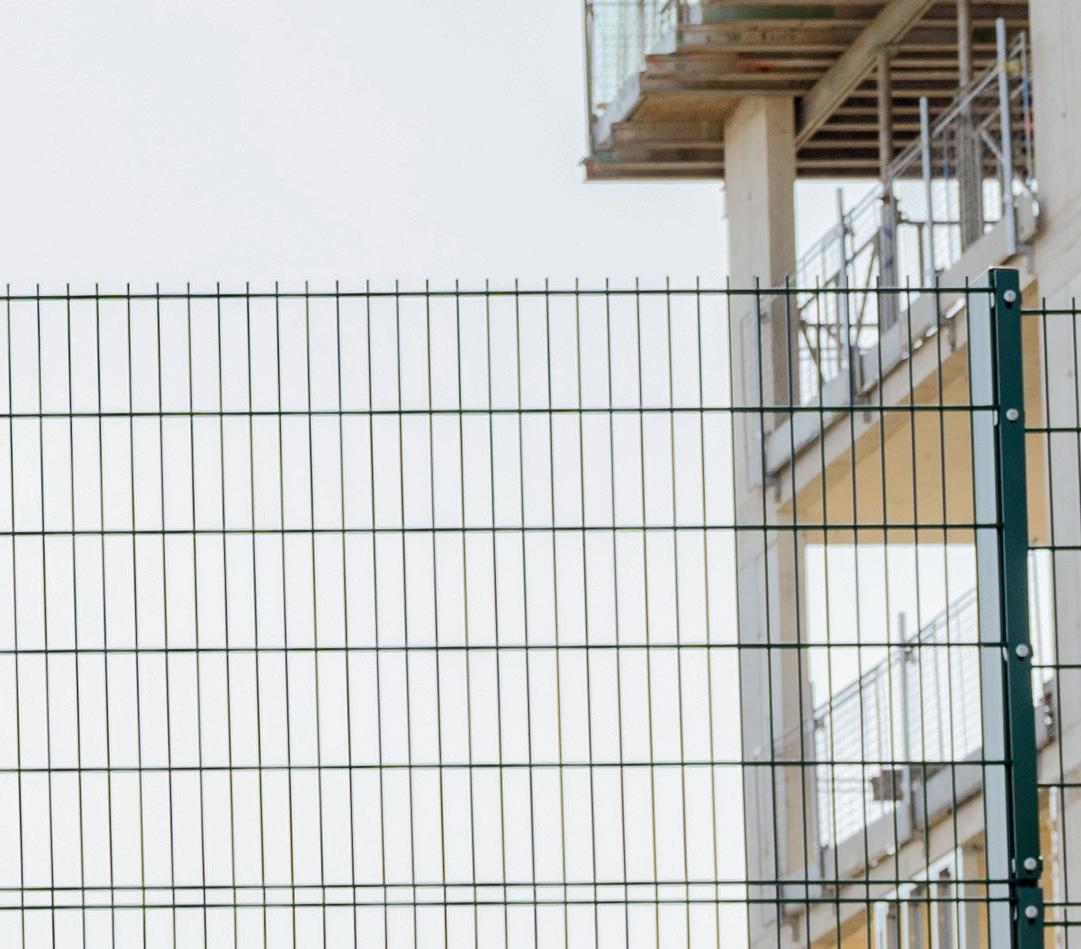

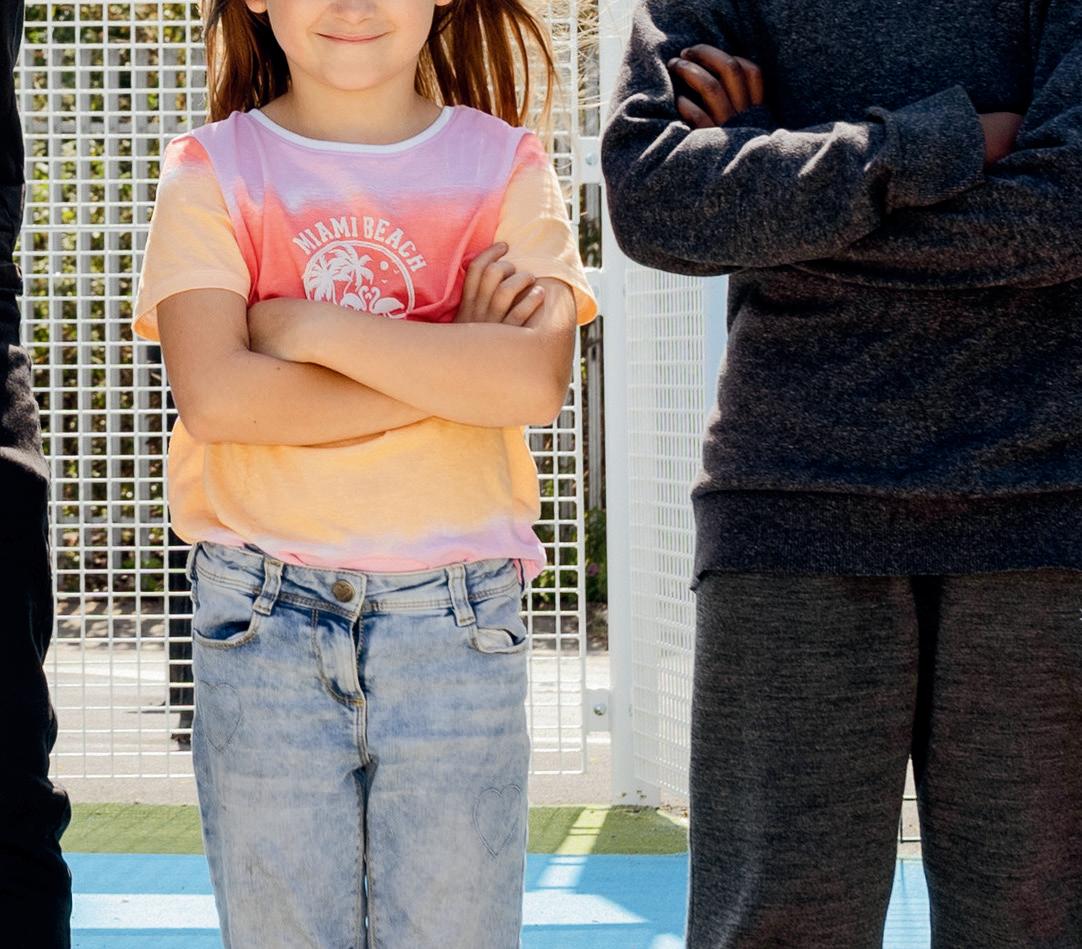

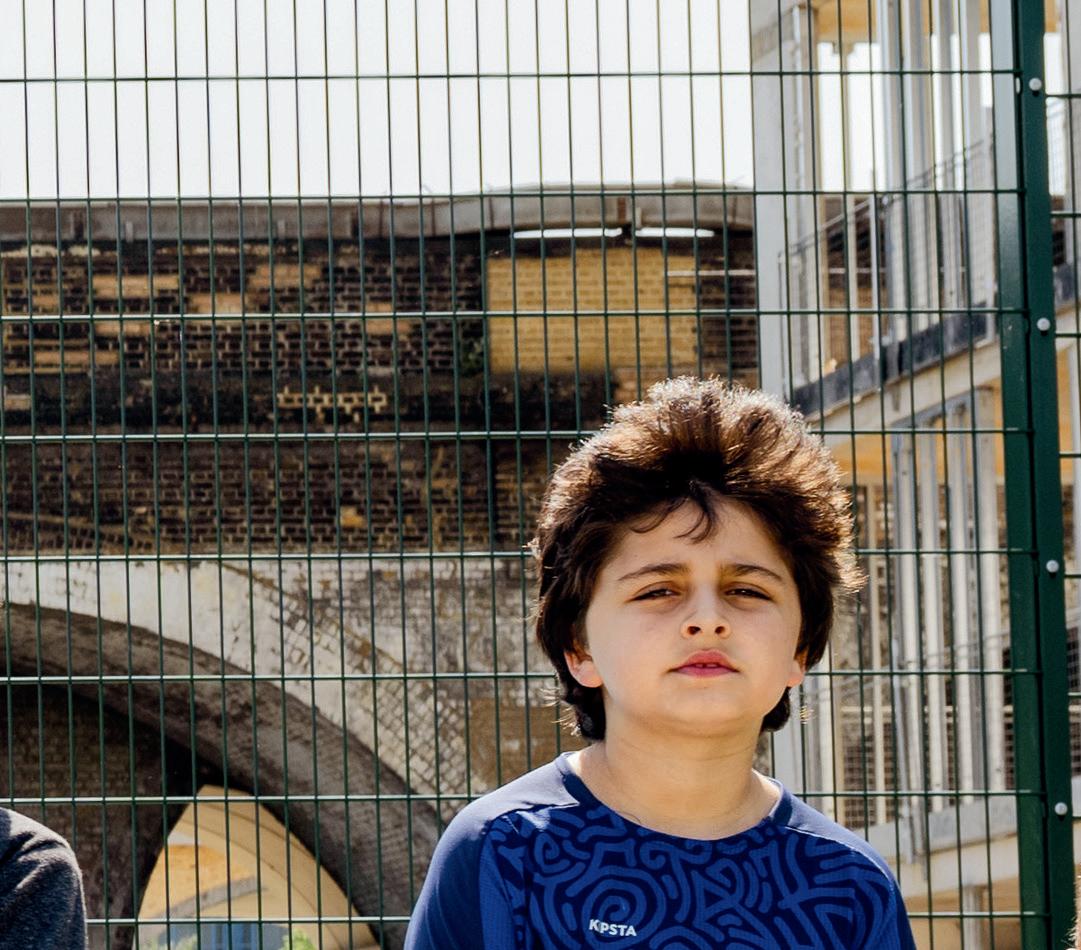
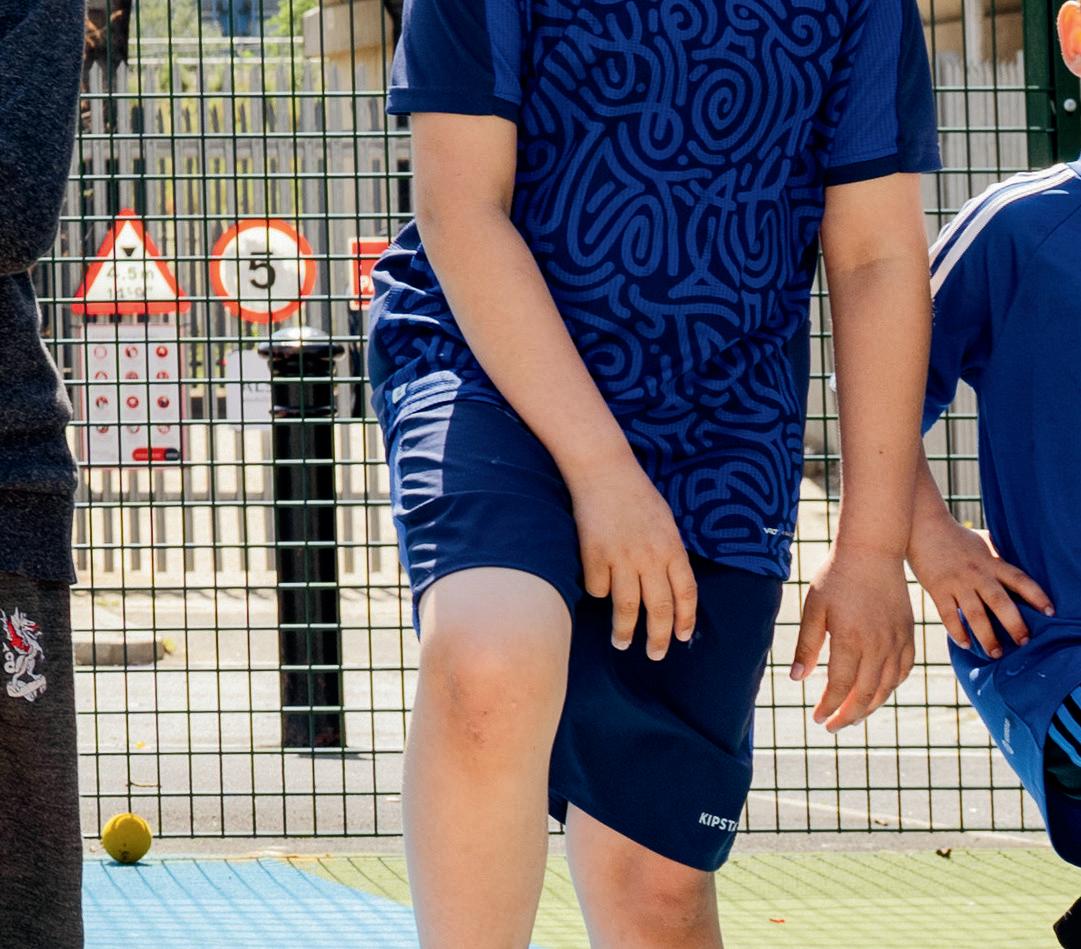

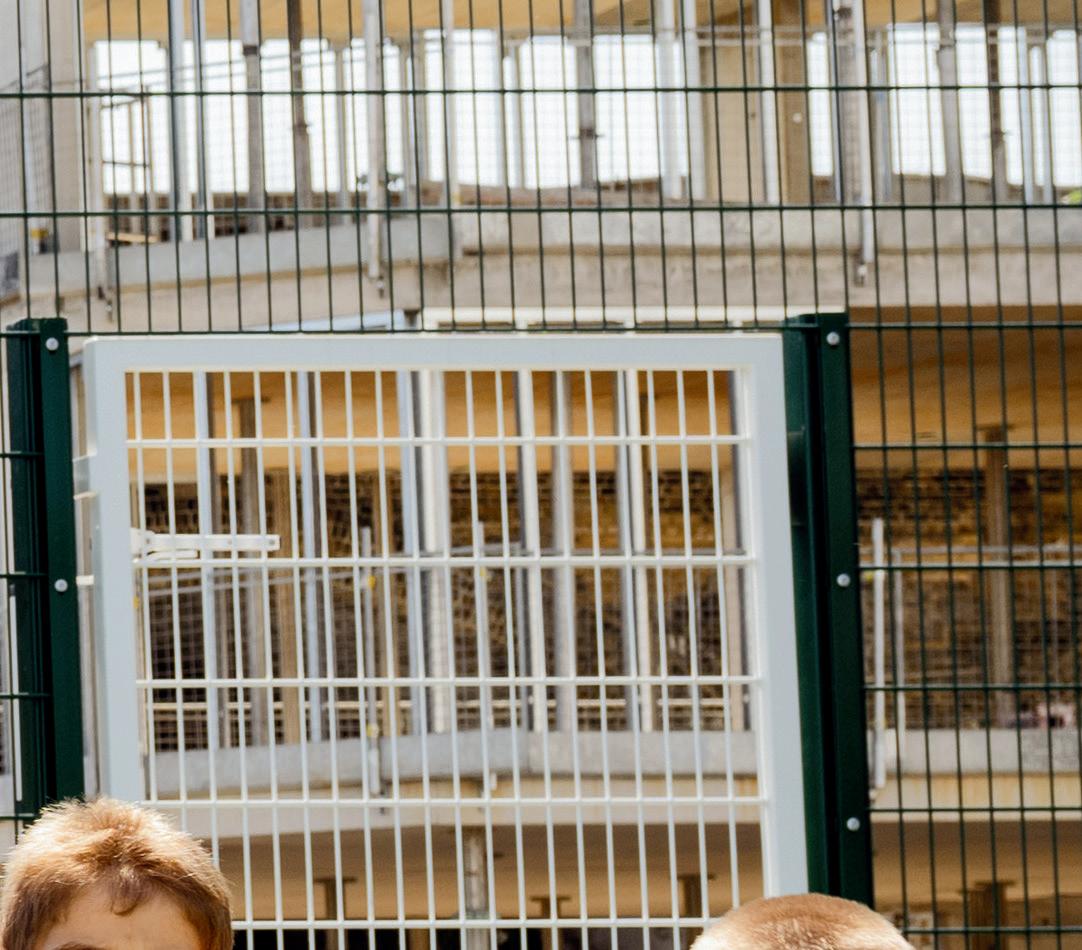

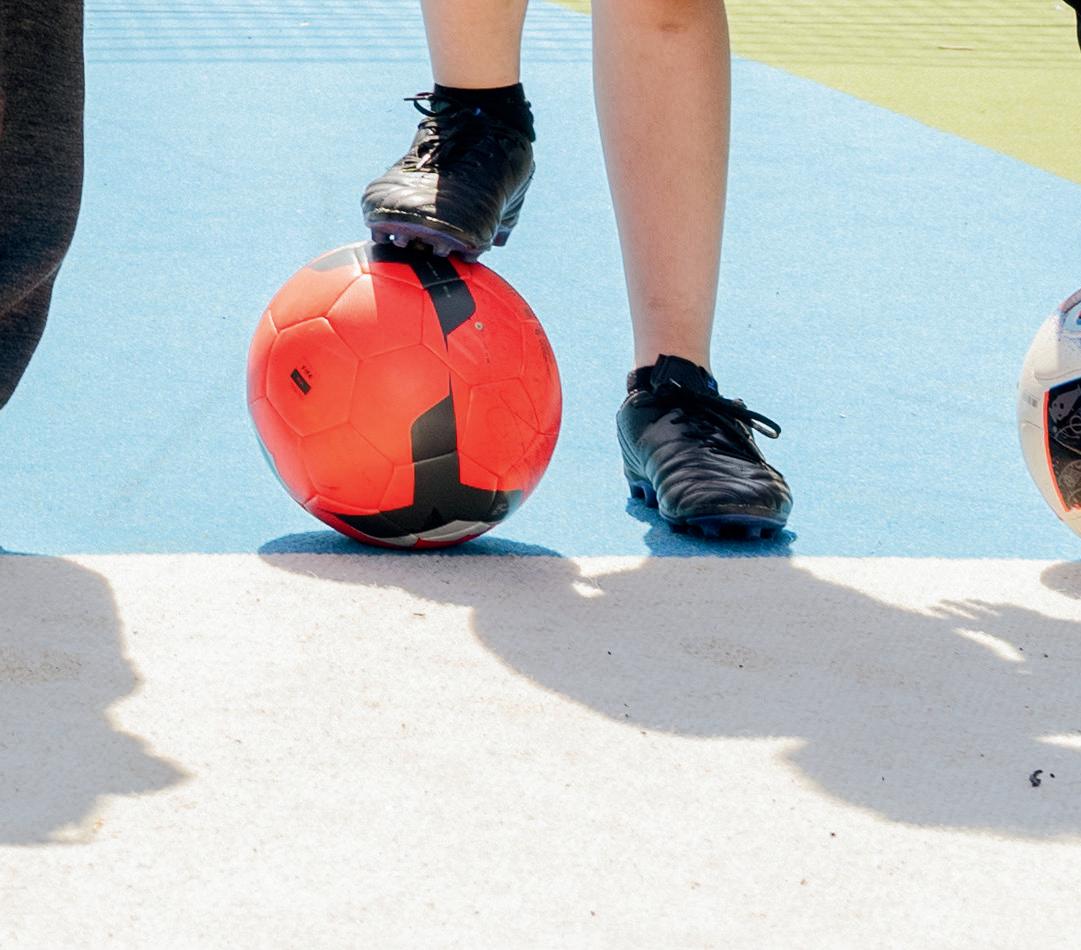
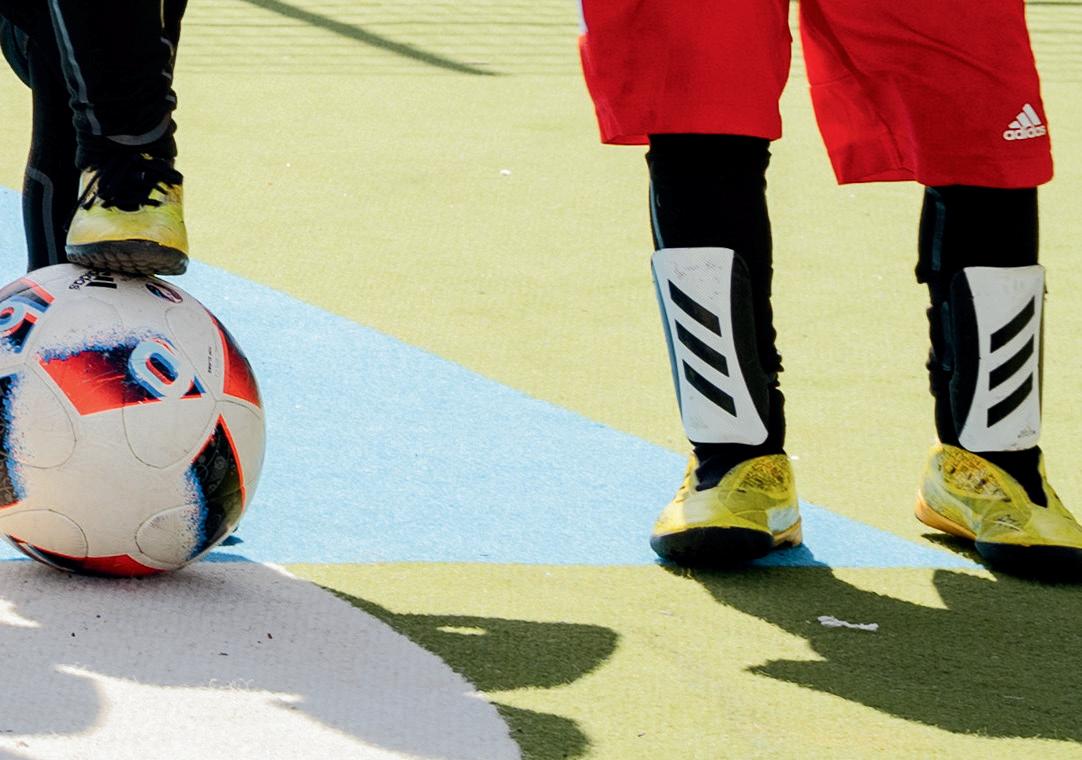
& builders of beautiful sports courts.






Bournemouth, Christchurch and Poole Council has introduced a strategy for play with the aim of providing high quality, accessible, safe and inclusive play spaces for all. PlayNation looks at the strategy in detail and speaks to council leader, Millie Earl, on what it all means
Bournemouth, Christchurch and Poole Council (BCP) approved and adopted a wide-reaching strategy for play in December 2024. Called Plan for Play, the blueprint consists of three strategic documents: the Play and Wheeled Activity Strategy, Design Guide and Improvement Plan. Perhaps most importantly, the strategy is accompanied by a recommendation that the council should invest £3.9m in improving and developing play spaces.
Plan for Play sets out how the play infrastructure should be managed, designed and improved. Its vision is both clear and ambitious: “To provide high-quality, accessible, safe and inclusive play spaces, where everyone of all abilities, across Bournemouth, Christchurch and Poole, can learn, have fun and be active through play. All ages and abilities should feel safe, confident and excited to use our play spaces as part of leading fulfilled lives with brighter futures.”
There are currently 171 play sites across the BCP area comprising 1,175 individual pieces of play equipment (excluding fences, gates, benches etc). The council recognised that the play stock had been largely inherited from the preceding councils and was in major decline
towards end-of-life soon. There was therefore a challenge to set out the future needs for play.
“Without investment, there is a real risk of wholesale removal of equipment and site closures,” the council says. “This will have an immediate impact, not only on the health and wellbeing of our young people, but also on the wider quality of green spaces, feelings of safety and levels of anti-social behaviour.
“The Plan for Play comes in three-parts – the main strategy document that provides the detail on spatial provision, state of play in BCP and a national context. It also comes with a design guide that will shape the quality and delivery of future play spaces. Within the strategy, there is an improvement plan which sets out how any funding that can be secured will be directed and prioritised.”

Having assessed and identified the issues regarding the play sites and equipment, BCP Council realised that finding the resources – and being able to prioritise them – to improve things would be demanding. And that’s where Plan for Play comes in.
“Funding the required level of investment will be a challenge,” the council said. “However, this will be clearer and easier with a defined strategy in place, helping to prioritise any available
Around 120 play spaces will bene t from Phase 1 repair funding – with major refurbishments starting from Autumn 2025
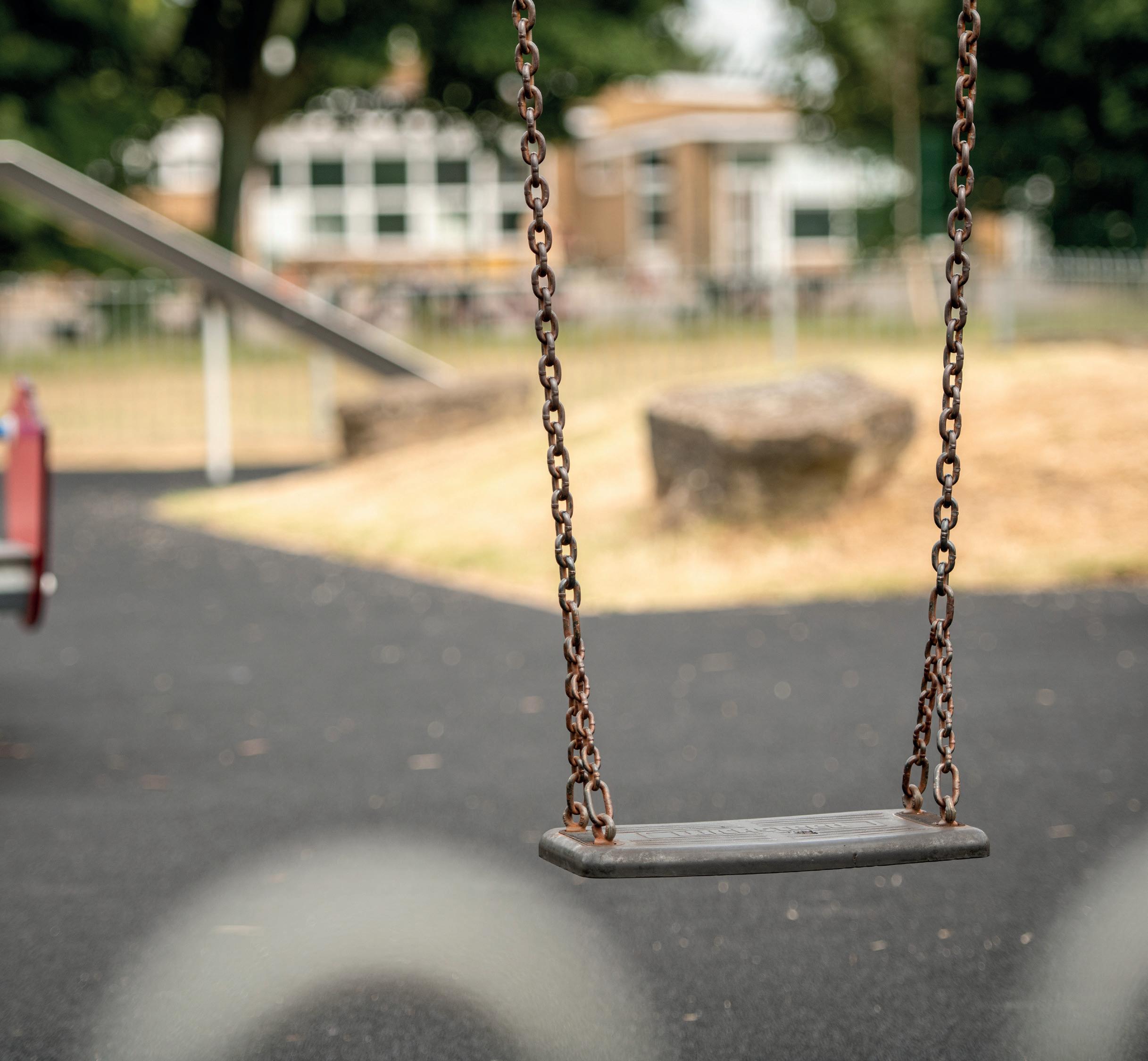
funding. This is supported by the valued work of community and stakeholder groups who are of increasing importance in championing, resourcing and sustaining local play needs.”
The Council’s own Community Infrastructure Levy (CIL) (developer contributions for the delivery of infrastructure to support housing growth) will be an important funding mechanism, alongside external funding available to charities and community groups.
“Extensive evidence defines where the highest demand for new facilities is across BCP and provides a platform for decision making,” the council said.
“All communities and their stakeholders will advocate for their play spaces to be at the top of this list. The strategy therefore sets out a rationale for delivery in a prioritised manner and process. It identifies the need for defect repairs, refurbishment, replacement, creation of new

play spaces and repurposing; while taking in to account the diverse needs of our community.
The Plan for Play aims to secure the future of play areas and wheeled sports provision. To ensure the aims laid out in the strategy remain achievable, they include BCP Council-owned play areas – including rebound walls, natural play, play trails, play sculptures and multi-use games areas (MUGAs), as well as wheeled provisions including skate parks, BMX tracks and Cyclogyms. The Plan for Play does not include other play opportunities, such as splash parks, adult outdoor fitness equipment or facilities managed by organised groups. Equally out of scope are indoor or private spaces, such as school playgrounds that are generally inaccessible to the public.
The detail of the Improvement Plan and work streams to deliver this investment will be developed and published later this year (2025).
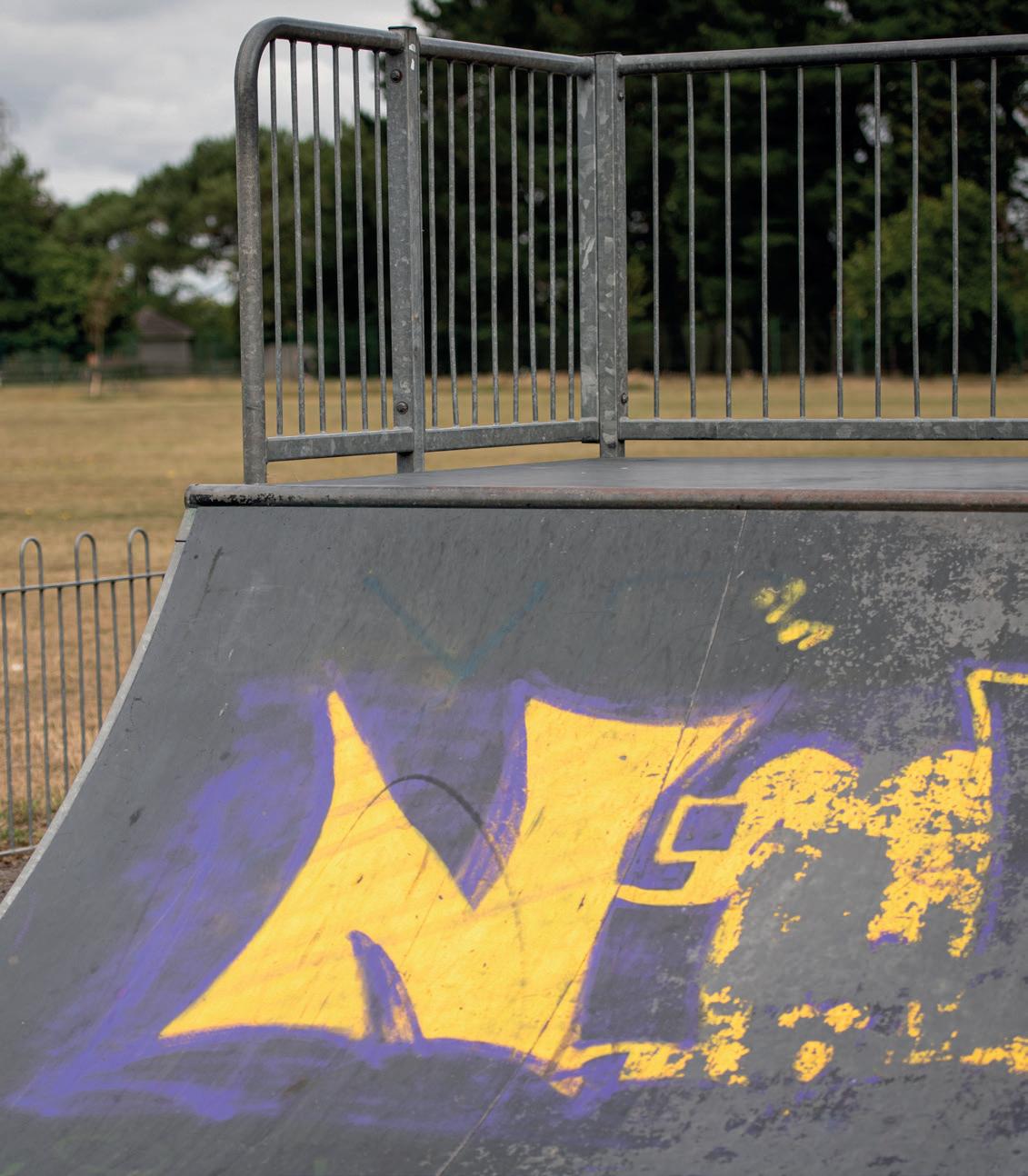
So, what – and when – will families and residents see as a result of the strategy? According to the council, changes are already taking place and will be noticeable.
“Through 2025 people should start to see local play facilities improve,” the council told PlayNation. “Whether through repairs to existing equipment that are worn or broken, or more substantial redevelopment of whole sites.
“Around 120 play spaces across the area will benefit from Phase 1 repair funding to bring valuable play equipment back into life. This includes a new seesaw in Littledown, a replacement goal in Southbourne, and fixed swing seats in Christchurch. In total, 17 sites have been earmarked for major refurbishment or replacements throughout the first phase of Plan for Play and these will be delivered from Autumn 2025.
“Included in these major projects is a £300,000 replacement skate / BMX park at Baiter and £200,000 for a brand new play space in Muscliff & Strouden. Public consultation is being planned for the sites that require the biggest amount of change. The consultation will be hosted on the BCP engagement website, but will also feature on site and face-to-face consultation with young people, park users and residents.”

I was really lucky because I grew up in the Ashley Road area of Poole and I had access to lots of really good quality play spaces nearby. My best friend lived in Uppleby Road so we spent a lot of time in the Uppleby Road play park – it had a really wide slide which was great fun because lots of you could go down on it together.
I used to injure myself all the time from jumping off swings – which I don’t recommend, by the way – but we were pushing boundaries and being competitive.
I think the beauty of having had those experiences is that just talking about it now takes me right back to being a six year old running around and having the time of my life. That’s what we as a Council want to provide to future generations and it’s all about providing high quality play areas that give them that safe space to create their own social network, learn, and, ultimately, just enjoy going to.
We’ve all experienced play parks over the years and it is so valuable when we look at children’s development – it is essential for health and wellbeing, it’s important for social skills, and it supports children in being active and not glued to their screens all the time.
The benefits of play are so much more than just in the moment – it’s the freedom we take from learning and growing outside of school, it’s the resilience we build from tripping and scraping our knees, it’s the courage we gain from doing something different, and it’s the joy we have when we look back on those memories in years to come.


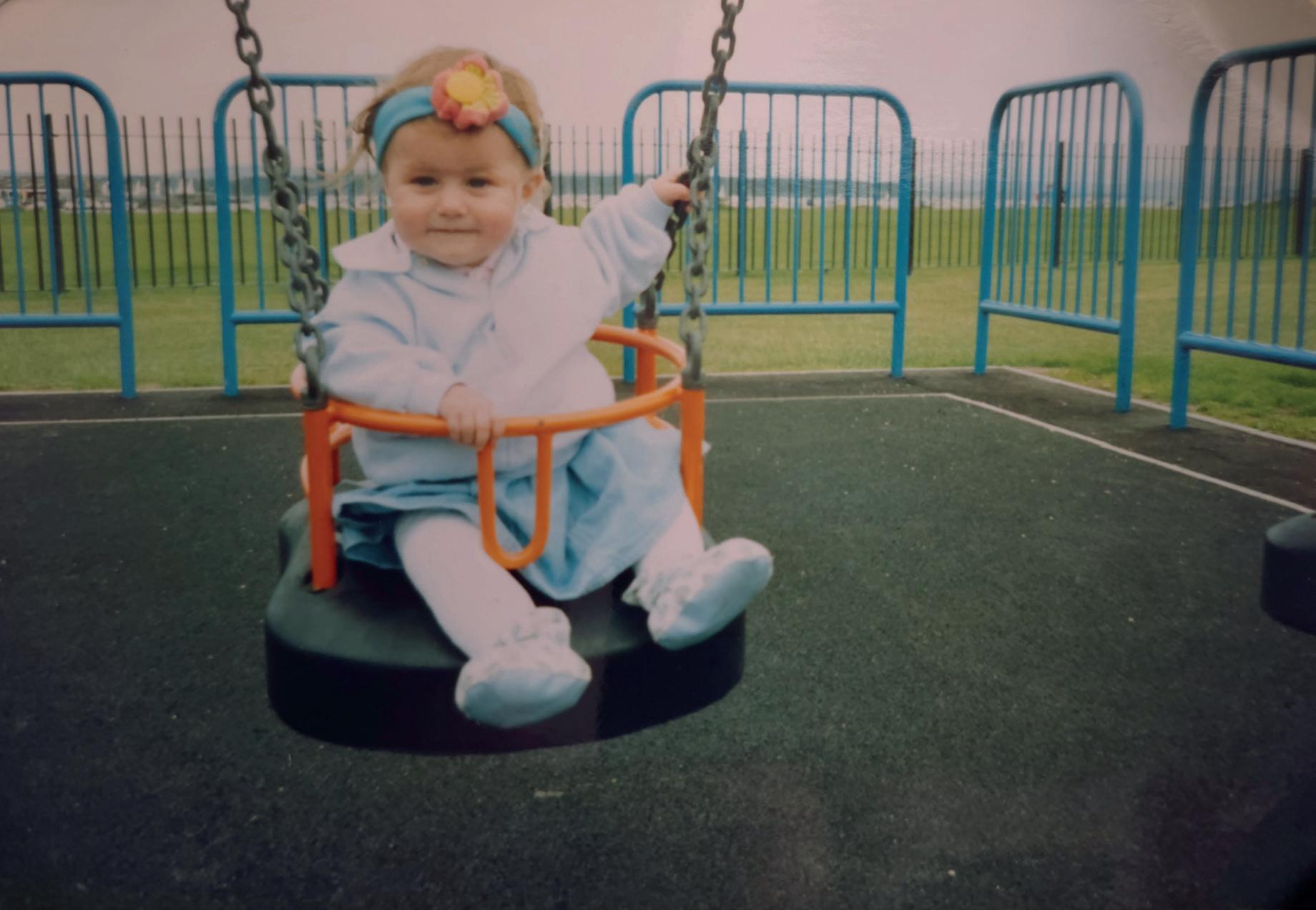
Play isn’t just fun – it’s freedom, resilience, courage and joy that lasts a lifetime

It’s so important we provide those same building blocks for development to future generations and provide spaces where children want to play.”
What does Plan for Play mean for you as a council leader?
This has been one of our priorities since we took over the running of the Council in 2023we were really concerned about the state and sustainability of play parks across Bournemouth, Christchurch and Poole, and we have been determined to produce a long-term fix.
We also want to ensure our play areas are inclusive and accessible - making sure they’re safe and provide high-quality fun for children.
We started creating the play strategy as one of our first priorities and now, a year later, we’ve published it and passed it through Council. I am really proud because it addresses our concerns and I’m feeling really confident that, by the end of it, we’re going to have really good quality play areas across our three towns which can be enjoyed for generations to come.
I’m excited that the consultation stage of Plan for Play will mean actively engaging with communities and, essentially, co-creating play spaces with them. It is vital that we look at the needs of each community – what they’re calling for – and cater for that. We want to create that sense of community ownership over a play space – it means it’s more likely to be used and cherished and gives people a real connection to a space that they’ve helped to create.
The consultation will also bring out things we don’t necessarily know about as a Council – particularly when it comes to what children want to see – so I’m really excited for families to be able to get stuck in and help create some really good community play spaces.
How is Plan for Play being funded?
More than 80% of Phase 1 funding comes from Strategic CIL (Community Infrastructure Levy) and that is money paid to the Council from developers to mitigate the impact of their developments. We can then re-invest that money into infrastructure and priorities that we know will benefit the surrounding community.
The important part is that it’s a large capital pot, not at the cost of the taxpayer, that we can use to provide tangible improvements for our residents.”
What would BCP Council like to see from national government?
I think it’s really important that the Government should want to invest in children and young people. They have talked about a prevention agenda (investing in resources to prevent crime and ASB) but, actually, play is a huge marker in the development of children and young people.
From my point of view, the Government needs to look at a play strategy as part of their prevention agenda. They should be committing money to make sure that every child across the country has access to play otherwise it becomes a postcode lottery about what provision is actually afforded in a community.”
